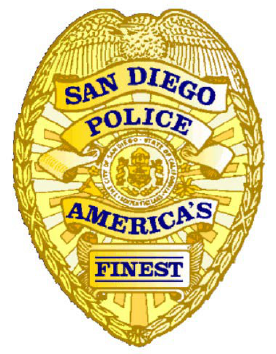
Page
1
of
65
SAN DIEGO POLICE DEPARTMENT
TRAFFIC DIVISION
TOW ADMINISTRATION UNIT
OPERATIONS
MANUAL
CONFIDENTIAL
All portions of this document are deemed by the San Diego Police Department to be
records of its security procedures and are exempt from disclosure by section 6254 of the
California Government Code
September 2020
Page
2
of
65
INDEX
Section One: Mission of the Tow Administration Unit
Section Two: Tow Administration Unit Sergeant Duties
Section Three: Tow Administration Unit Personnel Duties
Section Four: Unit and Towing Operations
Section Five: Attachment A
Page
3
of
65
Section One: Mission Statement
The Tow Administration Unit is a specialized unit that manages the SDPD Towing Program
by strictly enforcing Policies, Procedures, and reporting requirements pertaining to towing,
impound, storage, release, disposal, billing, and other related matters for City initiated tows.
The Unit responsible for the oversight of all Licensed Tow Providers (LTP) and Licensed
Impound Providers (LIP) contracted to provide towing services to the City and ensures it is
done so in a fair, impartial, and equitable manner for tow providers, the City, and the citizens
of San Diego.
The Unit is staffed by one (1) sworn Police Sergeant and two (2) Administrative Aides. The
Administrative Aides are under direct supervision of the Tow Administration Sergeant.
Page
4
of
65
Section Two: Tow Administration Sergeant
The Tow Administration Sergeant is under the direct supervision of the Traffic Division Tow
Administration Lieutenant. The Tow Administration Sergeant supervises the assigned
Administrative Aides and is responsible for the following:
1. Provide direct oversight and management of the SDPD Towing Program ensuring all
Tow Providers adhere and comply with the operational requirements set forth in the
RFSQ, Tow Agreement(s), SDPD Managed Towing Operations Manual, and all other
laws and regulations pertaining to towing.
2. Act as the liaison to City Departments including the City Attorney Office, Purchasing and
Contracting, Fiscal Operations, City Treasurers Officer, and City Council on all tow
related matters including, but not limited to legal opinion, Tow Agreements, account
billing, Tow Provider identification cards, etc.
3. Act as the liaison to the Licensed Tow Providers (LTP), and Licensed Impound Providers
(LIP) on all tow related matters including, but not limited to towing and impound
procedures, tow complaints, safety and contract violations, etc.
4. Act as the liaison to the Contracted Tow Dispatcher on all tow related matters including,
but not limited to tow dispatching, billing, statistical reporting, tow evaluations, audits,
invoicing, disciplinary actions, etc.
5. Act as a liaison to Local, State, and Federal agencies including Police Departments and
Department of Motor Vehicles on all tow related matters.
6. Review and revise the following documents as they occur.
a. Polices
b. Procedures
c. SDPD Managed Towing Operations Manual
7. Generate the following documents as they occur and when necessary:
a. Department Announcements
b. Training Bulletin
8. Work closely with the area Divisions and Investigative units to maintaining a clear
communication between Officers, Investigators, and Tow Administration. The goal is to
provide the highest level of service and ensure Policies, Procedures, and operational
process are followed.
9. Audit and review Post –Storage Hearings for consistency and accuracy.
10. Assign follow-ups to Tow Administration personnel on special cases.
Page
5
of
65
11. Manage the dissemination of duties including tow complaints, citizen inquiries, and
telephone calls to Tow Administration personnel as applicable and re-assigns tasks when
necessary.
12. Review the daily, monthly and quarterly reports generated by the Tow Administration
personnel.
13. Work with Tow Providers to identify and resolve towing related issues.
14. Monitor and evaluate Administrative Aides and their work performance.
15. Investigates citizens’ complaints related to the Tow Administration Unit.
16. Attend Citywide Department and community meetings when necessary.

Page
6
of
65
Section Three: Tow Administration Unit Personnel (Administrative Aides)
The Tow Administration Unit personnel are under direct supervision of the Tow
Administration Sergeant. Tow Administration personnel are responsible for carrying out
administrative functions and operational process of the Tow Administration Unit and all
other assigned including, but not limited to the following:
Program Administration
1. Communicate information to Tow Providers regarding vehicle releases, charges and
results from Post-Storage Hearings.
2. Inventory all impounded vehicles in City, Tow and Impound Providers lots.
3. Monitor and track all vehicles placed on evidentiary holds and extended holds including,
but not limited to 5-Day, 15-Day and 30-Day impounds.
4. Conduct vehicle releases and/or transfers from City lots on behalf of Investigator(s)
and/or Investigative unit(s).
5. Manage vehicle location and movement from processing to storage status within City
lots.
6. Monitor stored vehicles within City lots in accordance with Federal, State, and Local
environmental regulations.
7. Release vehicle holds through the impound management system.
Customer Service:
1. Conduct Post-Storage Hearings as required by California Law.
2. Intake calls from citizens regarding tow related matters including protest of tows,
location of stored vehicles, tow status and cost of impounds.
3. Communicates with Local, State, and Federal agencies including Police Departments and
Department of Motor Vehicles on all tow related matters.
4. Communicates with Officers, Detectives, and other Department units regarding vehicles
impounded with an evidence hold or extended holds including, but not limited to 5-Day,
15-Day and 30-Day impounds.
Research & Investigation:
1. Research Long-term investigative holds for case adjudication and final disposition.

Page
7
of
65
2. Research response time violations by Tow Providers as reported by Department
personnel.
3. Investigate discrepancies between MPS and the Impound Management System (IMS).
4. Proactively identifies, investigates and enforces Policies and Procedures as it relates to
towing.
5. Conduct Post-Storage hearing, investigations and all necessary follow ups to determine
validity of Police initiated impounds.
6. Access and utilize all available computer databases as part of the investigative process
including, but not limited to MPS, IMS, Coplink, eSun, etc.
7. Investigate public complaints against Tow Providers, Officers, and other members of the
Department for validity of tow impounds.
8. Investigate Route Slips from the Chief’s Office and Referrals from other City
Departments or Agencies.
General Clerical
1. Conduct daily filings of evidentiary vehicle impound files.
2. Update Computer databases related to evidence impounds and Post-Storage hearing
results.
3. Review, process and approve weekly towing invoices for Fiscal Operations.
4. Download, disseminate and respond to voicemail messages received from the Tow
Administration public and assigned desk phone lines.
5. Maintain daily, weekly, and monthly work logs of activity for statistical and quarterly
management reporting to include, but not limited to tow counts, hearing reversals, fees
paid by the Department for invalid tows, etc.
6. Adhere to records retention Policies for the retention and disposal of Tow Administration
documents and files.
7. Respond to all public records request in accordance with CPRA.
Maintenance/Other Duties:
1. Ensure proper collection and disposal of fluids in accordance with various hazardous
materials regulations.

Page
8
of
65
2. Coordinate for necessary collection receptacles, materials and disposal of hazardous
materials through outside agencies.
3. Maintain accessibility and security of City lots and evidence processing facility.
4. Request appropriate maintenance services through Facilities Management and conduct
maintenance as necessary.
Fiscal Administration:
5. Review and initially approve invoiced services regarding towing operations.
6. Conduct random audits and inspection of tow invoices to ensure appropriateness of
charges and decline inappropriate charges submitted by tow providers.
Training & Support:
1. Conduct periodic training to Department personnel regarding the SDPD Managed
Towing Program.
2. Provide training updates to the various Department units regarding trends, applicable
laws and procedures for towing and impounding.
Page
9
of
65
Section Four: Unit and Towing Operations
On August 1, 2017, the City entered into numerous tow agreements with various Licensed
Tow Providers (LTP) and Licensed Impound Provides (LIP) for a period of one year with the
option to extend individual contracts for up to four additional years.
As part of the Tow Agreements, the selected Tow Providers agreed to adhere and comply
with the operational requirements set forth in the RFSQ, Tow Agreement(s), SDPD Managed
Towing Operations Manual and all other Laws and Regulations pertaining to towing.
The San Diego Police Department Managed Towing Operations Manual, which accompanies
the Tow Administration Unit Operations Manual as “Attachment A,” outlines the
requirements for Tow Providers for towing services and requirements for Tow Providers for
the impound, storage and release of vehicles.
This document is incorporated into the Towing and Impound Services RSFQ and Tow
Agreements and will be reviewed and updated on an ongoing basis.
No material changes that will impede towing operations or significantly change the terms of
the active Tow Agreements shall be made to the SDPD Managed Towing Operations Manual
including, but not limited to fee schedules without the express written consent of the City
Purchasing & Contracting Division or their designee.
This shall not preclude the SDPD Tow Administrator from making necessary operational
changes or revisions to the manual to ensure maximum efficiency and management of the
Tow Program and to enhance operator safety.
See “Attachment A,” SDPD Managed Towing Operation Manual for additional information
and requirements.
Page
10
of
65
(ATTACHMENT A)
SDPD MANAGED TOWING OPERATIONS MANUAL
Table of contents
I.
PURPOSE AND BACKGROUND ................................................................................................................... 12
II.
DEFINITIONS ............................................................................................................................................. 12
III.
OVERVIEW ................................................................................................................................................ 14
IV.
DISPATCH METHODOLOGY ....................................................................................................................... 14
V.
REQUIREMENTS FOR LTPS AND LIPS, AS APPLICABLE ................................................................................ 14
A.
TOW TRUCK SPECIFICATIONS ................................................................................................................................ 14
B.
RECOVERY EQUIPMENT RATINGS ........................................................................................................................... 17
C.
GENERAL EQUIPMENT SPECIFICATIONS ................................................................................................................... 18
D.
ADDITIONAL TOW TRUCK EQUIPMENT REQUIREMENTS .............................................................................................. 19
E.
TOW TRUCK DRIVER REQUIREMENTS ..................................................................................................................... 19
F.
TOW TRUCK COMPLIANCE AUDITS (SDPD) ............................................................................................................. 20
G.
COMPUTER AND NETWORK INFRASTRUCTURE .......................................................................................................... 20
H.
BUSINESS LICENSES AND PERMITS .......................................................................................................................... 22
I.
INSURANCE, INDEMNITY, AND DAMAGES/LIABILITY ................................................................................................... 22
VI.
PERFORMANCE REQUIREMENTS FOR LTPS AND LIPS, AS APPLICABLE ...................................................... 26
A.
TOWS .............................................................................................................................................................. 26
B.
DELIVERY TO AN LIP YARD ................................................................................................................................... 28
C.
DELIVERY TO THE CITY IMPOUND YARD ................................................................................................................... 28
D.
TOWS/ASSISTANCE OF CITY VEHICLES .................................................................................................................... 28
E.
TOWING OF PEDI-CABS ...................................................................................................................................... 29
F.
CITY-WIDE EMERGENCY RESPONSES AND SPECIAL EVENTS ......................................................................................... 29
G.
TOW PROVIDER/TOW TRUCK DRIVER IDENTIFICATION ............................................................................................... 29
H.
TOW TRUCK DRIVER REQUIREMENTS ..................................................................................................................... 30
I.
RESPONSE TIME ................................................................................................................................................. 31
J.
BUSINESS HOURS ............................................................................................................................................... 33
K.
BUSINESS RECORDS ............................................................................................................................................ 33
L.
AUDIT AND INSPECTION OF RECORDS ..................................................................................................................... 33
M.
TOW AND IMPOUND RATES .................................................................................................................................. 34
N.
TOW AND IMPOUND RATE ADJUSTMENTS ............................................................................................................... 35
O.
LTP PAYMENTS.................................................................................................................................................. 35
P.
COMPLAINTS ..................................................................................................................................................... 36
Q.
PENALTIES FOR NON-PERFORMANCE ..................................................................................................................... 36
R.
LIVING WAGES .................................................................................................................................................. 37
VII.
ADDITIONAL REQUIREMENTS FOR LIPS (LIPS ONLY) ............................................................................... 38
A.
CUSTOMER SERVICE ............................................................................................................................................ 38
B.
STORAGE FACILITY .............................................................................................................................................. 39
C.
VEHICLE AUCTIONEER ......................................................................................................................................... 40
VIII.
ADDITIONAL PERFORMANCE REQUIREMENTS FOR LIP (LIPS ONLY) ....................................................... 40
A.
STORAGE FACILITY MANAGEMENT ......................................................................................................................... 40
B.
CUSTOMER SERVICE ............................................................................................................................................ 41
Page
11
of
65
C.
VEHICLE INTAKE AND PROCESSING ......................................................................................................................... 41
D.
VEHICLE DATA ENTRY........................................................................................................................................... 42
E.
INFORMATION AND VEHICLE RETRIEVAL PROCEDURES ............................................................................................... 43
F.
STORAGE OF VEHICLES IN EXCESS OF 72-HOURS ..................................................................................................... 43
G.
RELEASE OF IMPOUNDED VEHICLES ........................................................................................................................ 43
H.
REMOVAL AND RELEASE OF PERSONAL PROPERTY AND CARGO .................................................................................... 45
I.
PROCEDURES FOR LIEN SALES ............................................................................................................................... 46
J.
POST-LIEN SALE PROCEDURES .............................................................................................................................. 47
K.
FORFEITURES ..................................................................................................................................................... 47
L.
DUI FORFEITURES .............................................................................................................................................. 49
M.
LIP PAYMENTS TO THE CITY .................................................................................................................................. 50
N.
TOW/IMPOUND RATES AND FEES .......................................................................................................................... 51
O.
BUSINESS RECORDS ............................................................................................................................................ 52
Appendix 1 – California Vehicle Code Impound Authorities and San Diego Municipal Codes ............................. 53
Appendix 2 – Tow Truck Inspection Guide – CHP 234B (Rev. 3-15) .................................................................... 55
Appendix 3 – Rates and Fees ..............................................................................................................................
57
Appendix 4 – Contract Violations and Disciplinary Actions ................................................................................ 62
Appendix 5 – Map of Tow Zones and Beats ....................................................................................................... 65

12
I. PURPOSE AND BACKGROUND
The City of San Diego authorizes the tow and storage of approximately 25,600 vehicles
each year. The City uses a limited number of Tow Providers to perform these services.
This Manual provides Tow Providers with policies, procedures and reporting
requirements, pertaining to towing, impound, storage, releases, disposal, billing and
related matters for City-initiated tows.
II. DEFINITIONS
A. Administrative Hold – vehicles removed and/or stored pursuant to § 22651 CVC
(registration offenses, illegally parked vehicles, unpaid parking citations, and other
administrative matters).
B. Affiliate - an entity that directly or indirectly, through one or more intermediaries,
controls, is controlled by, or is under common control with another entity. As used
herein, the term “control” means the possession, directly or indirectly, of the power to
direct or cause the direction of the management and policies of an entity, whether
through ownership of voting securities or interests, by contract, or otherwise (For
purposes of clarification, “affiliate” shall not include any individual who is employed
by, or providing consulting services to, such entity.)
C. Automated Dispatch System (ADS) - the dispatch system used for managing the
assignment, status, and viewing tow request information.
D. City - the City of San Diego. Any organizational unit of the City of San Diego
including the San Diego Police Department.
E. City-Initiated Tow - towing of a vehicle or vehicles at the request of the SDPD and/or
City personnel by a LTP. City-initiated Towing shall not include towing authorized
pursuant to § 22658 CVC (Removal from Private Property).
F. City Tow/Service – The towing or servicing of a City vehicle. City rates apply to
these calls. The City tow rate will be used whether the vehicle is towed or serviced
(e.g. jumpstarted, flat tire repair, lockout and etc.).
G. “Class A” tow truck - a truck with a minimum of 14,000 pound GVWR Chassis, as
defined by the California Vehicle Code.
H. “Class B” tow truck - a truck with a minimum of 26,001 pound GVWR Chassis, as
defined by the California Vehicle Code.
I. “Class C” tow truck - a truck with a minimum of 48,000 pound GVWR Chassis, as
defined by the California Vehicle Code.
J. “Class D” tow truck - a truck with a minimum of 52,000 pound GVWR Chassis, as
defined by the California Vehicle Code.
K. Consumer Price Index (CPI) - annual adjustment that the towing and storage rates
are based on the Consumer Price Index for Urban Wage Earners and Clerical Workers,
semi-annual averages for San Diego, CA for the twelve months ending January of
each year, as published by the United States Department of Labor, Bureau of Labor
Statistics. Adjusted charges will be rounded to the nearest twenty-five cents ($0.25).
L. CVC -the California Vehicle Code.
M. CVSA - the Commercial Vehicle Safety Alliance.
N. FAWR - Front Axle Weight Rating.
13
O. GVWR - Gross Vehicle Weight Rating.
P. Impound Management System (IMS) - the technology system required to be used
for recording activity for Other Services, including, but not limited to, tracking of
impounded vehicles and disposal sale prices. The IMS includes various modules,
such as the Dispatch Tow Module, Tow Report Module, Intake Process Module,
Storage Management Module, Auction Module, Cashier Module and the
Administration Module.
Q. Licensed Towing Provider (LTP) - a qualified Tow Provider selected by the City
to provide Towing Services under a Tow Agreement.
R. Licensed Impound Provider (LIP) – a qualified Tow Provider selected by the City
to provide towing, impound, storage, release and disposal services under a Tow
Agreement.
S. Manual - the City of San Diego Managed Towing Operations Manual.
T. Non-Preference tow - is a “Private tow” requested and dispatched by the City on behalf
of a citizen, as a courtesy to the citizen. LTPs will be responsible for the Tow Contractor
Dispatch Fee.
U. Other Services - those services provided by an LIP, including tracking of impounded
vehicles, disposal sale prices, identification of the purchaser, and all citations paid.
V. Police Investigative Hold – vehicles removed and/or stored pursuant to § 22655 CVC
(hit and run investigations), § 22655.3 CVC (investigation, identification,
apprehension of a driver who violates §2800.1 CVC or § 2800.2 CVC, and
subsequently abandons vehicle), and § 22655.5 CVC (officer has probable cause that
vehicle is itself evidence of a crime or contains evidence of a crime).
W. RAWR - Rear Axle Weight Rating.
X. Regular Business Day - Monday through Friday, between 8:00 a.m. and 5 p.m.,
except for the following holidays: January 1, known as New Year’s Day; third Monday
in January, known as Dr. Martin Luther King Jr's birthday; third Monday in February,
known as Washington's birthday; last Monday in May, known as Memorial Day; July
4, known as Fourth of July; first Monday in September, known as Labor Day;
November 11, known as Veteran's Day; fourth Thursday in November, known as
Thanksgiving Day; and December 25, known as Christmas Day. If any of these dates
fall on a Sunday, the following Monday is considered to be a holiday, and if any of
these dates fall on a Saturday, the preceding Friday is considered to be a holiday.
Y. Response Time- the elapsed time between the relaying of the tow service request to
the Tow Provider and the arrival of the tow truck at the incident.
Z. RFSQ - this Request for Statement of Qualifications from qualified Tow Providers
seeking to obtain the Tow Agreement.
AA. Services - both Towing Services and Other Services, collectively.
BB. SDMC - San Diego Municipal Code.
CC. SDPD – San Diego Police Department.
DD. Tow Agreement - the standard contract between the City and the Licensed Tow
Provider (LTP) or Licensed Impound Provider (LIP).
EE. Tow Dispatch Contractor - the provider for towing dispatch, management and
logistic services.
FF. Tow Provider – a Licensed Tow Provider (LTP) or Licensed Impound Provider (LIP).

14
GG. Towing Services - those services performed by a LTP or LIP, as required by any
applicable law and/or in accordance with the Manual.
HH. 30-Day hold & Forfeiture Impounds- vehicles removed and/or stored for Driver’s
license offenses including § 14602.6 CVC (30-Day holds) and § 14607.6 CVC
(Forfeitures).
III. OVERVIEW
This Manual outlines the requirements for providers for towing services and requirements
for providers who will be conducting the impounding, storage and releases. This
document is incorporated into the Towing and Impound Services RFSQ and Tow
Agreements and will be reviewed and updated on an on-going basis.
IV. DISPATCH METHODOLOGY
To allow the maximum flexibility for the City, Tow Providers will be required to tow
and/or impound vehicles at the request of the City, or its designee, based upon several
potential dispatch method(s) that may be changed at the sole discretion of the City or its
designee. Those methods may include the following: closest-to (GPS driven), rotation of
geographic regions (zones), hybrid (mixture of both GPS and zones), telephone requests,
and Licensed Tow Providers (LTPs) towing to designated Licensed Impound Provider
(LIP) impound lots. The City, or its designee, intends to distribute requests among the
different LTPs based on the dispatch method within a zone, but does not guarantee an
even distribution of tows. The ADS dispatch system collects GPS information every 30
seconds that is transmitted back to the dispatch application with a small delay generally
averaging 50 to 30 seconds. While the GPS positions are not exact in real-time, the
system is effective at locating the tow truck operator in the field that is available and
closest to the tow location.
V. REQUIREMENTS FOR LTPs AND LIPs, AS APPLICABLE
A. TOW TRUCK SPECIFICATIONS
Tow Providers shall equip and maintain tow trucks and car carriers in accordance
with the provisions set forth in the CVC, Title 13 of the California Code of
Regulations, and this Manual.
1. All trucks must meet all applicable local, state and/or federal standards.
2. All tow trucks shall have recovery capabilities, wheel lift capabilities, and boom
capabilities that meet the requirements contained herein, with the exception of
Class D trucks used exclusively for salvage and recovery operations which are not
required to possess under lift capabilities.
3. Car carriers designed to carry more than three vehicles at one time are exempt
from the required recovery capabilities (wheel lift and boom requirements).
However, the car carrier must be an additional unit and shall not be used for
recovery or transportation of a vehicle during tow operations contracted with the
City. Flatbed tow trucks are permitted, when necessary, during normal tow
operations.
4. All tow trucks and car carriers shall be equipped with hydraulic or mechanical
winches. Minimum rating specifications required are as follows: Light Duty (4
ton), Medium Duty (6 ton), Heavy Duty (10 ton).
5. Class “A” Tow Truck - Light Duty Tow Minimum Requirements:
a. Minimum 14,500 Pound GVWR Chassis
b. 4-Ton Recovery Equipment Rating
c. One 4-Ton Snatch Block
d. Tow Dolly
e. Steering Wheel Securement Device
f. Wheel Lift Safety Straps
g. Tow Sling with a minimum rating of 3,000 Pounds (if equipped)
h. Tow Chains - 5/16", Grade 70 with J/T Hooks (minimum).
i. Safety Chains - 5/16" Alloy, or OEM Specifications
j. Wheel Lift Rating - 3,000 Pounds (extended)
k. Adequate Crossbeams (4"X4"X60")
l. 100' of 3/8" “6 x 19” Wire Rope, or OEM Specifications
6. Class “A” Car Carrier - One Vehicle Minimum Requirements:
a. Minimum 14,500 Pound GVWR Chassis
b. 50' of 3/8" “6 x 19” Wire Rope, or OEM Specifications
c. Loading Bridle with J/T Hook
d. 4 Safety Chains - 5/16", Grade 70=Rated Nylon Straps w/Ratchets
e. Adequate Crossbeams or Adequate Ramping Material
7. Class “A” Car Carrier - Two Vehicle Minimum Requirements:
a. Minimum 19,501 Pound GVWR Chassis
b. Loading Bridle with J/T Hooks
c. 50' of 3/8" “6 x 19” Wire Rope, or OEM Specifications
d. 4 Safety Chains 5/16", Grade 70=Rated Nylon Straps w/Ratchets
e. 2 Safety Chains or Rated Straps w/Ratchets for Towed Vehicle
f. Adequate Crossbeams or Adequate Ramping Material
8. Class “B” Tow Truck - Medium Duty Tow Minimum Requirements:
a. Minimum 26,001 Pound GVWR Chassis
b. 16-Ton Recovery Equipment Rating
c. 150' of 7/16" “6 x 19” Wire Rope, or OEM Specifications
15
16
d. Safety Chains - 1/2" Alloy, or OEM Specifications
e. Two 8-Ton Snatch Blocks
f. Air Brakes or Hydraulic W/Air Hookup Package
g. Air Hoses and Fittings
h. Steering Wheel Securement Device
i. Axle Covers/Caps
j. Truck Hitch with 7,000 lb Rating (if equipped)
k. Adequate Crossbeams (4"x6"x48")
l. Tow Chains - 1/2", Grade 70 with JT Hooks (minimum)
m. Wheel Lift Rating - 10,000 Pounds / 8,000 Pounds Extended
n. Wheel Lift Safety Straps w/Tie-Down Straps or Chains
o. Lift/Fork Adapters w/Tie-Down Straps or Chains
p. Safety Tie-Down Chains and Binders
q. Aluminum Tow Angles (Minimum 2)
r. Tow Bar - 7,000 lb Rating
9. Class “B” Car Carrier - One Vehicle Minimum Requirements
a. Minimum 33,000 Pound GVWR Chassis
b. 50' of 3/8" “6 x 19” Wire Rope, or OEM Specifications
c. Loading Bridle with J/T Hooks
d. Steering Wheel Securement Device
e. 4 Safety Chains, 5/16", Grade 70=Rated Nylon Straps w/Ratchets
f. 2 Safety Chains or Rated Straps w/Ratchets for Towed Vehicle
g. Adequate Cross Beams or Adequate Ramping Material
10. Class “C” Tow Truck – Heavy Duty Tow Minimum Requirements
a. Minimum 48,000 Pound GVWR Chassis
b. 25-Ton Recovery Equipment Rating
c. 200' of 5/8" “6x19” Wire Rope, or OEM Specifications
d. Safety Chains - 5/8" Alloy, or OEM Specifications
e. Two 12-Ton Snatch Blocks
f. Air Brakes W/Air Hookup Package
g. Air Hoses and Fittings
h. Steering Wheel Securement Device
i. Axle Covers/Caps
j. Tow Sling - 12,000 lb Rating (if equipped)
k. Tow Chains - 5/8", Grade 70, or OEM Specifications
l. 4"x6"x48" Adequate Crossbeams (48" Minimum / (2) 4"x6"x48")
m. Pintle Hook
n. Under Lift Rating - 25,000 Pounds / 12,000 Pounds Extended
o. Under Lift Securement Safety Chains or Straps
p. Wheel Lift Safety Straps
q. Lift/Fork Adapters
r. Aluminum Tow Angles (Minimum 2)
s. Safety Tie-Down Chains and Binders
t. Tow Bar - 12,000 lb Rating

17
11. Class “D” Tow Truck - Super Heavy Duty Tow
Minimum Requirements
a. Minimum 52,000 Pound GVWR Chassis
b. 35-Ton Recovery Equipment Rating
c. 250' of 3/4" “6x19” Wire Rope, or OEM Specifications
d. Safety Chains - 5/8" Alloy, or OEM Specifications
e. Two 12-Ton Snatch Blocks
f. Air Brakes W/Air Hookup Package
g. Air Hoses and Fittings
h. Steering Wheel Securement Device
i. Axle Cover/Caps
j. Under Lift Securement Safety Chains or Straps
k. Tow Chains - 5/8", Grade 70, or OEM Specifications
l. 4"x6"x48" Adequate Crossbeams (48" Minimum / (2) 4"x6"x48")
m. Pintle Hook
n. Under Lift Rating - 32,000 Pounds / 16,000 Pounds Extended
o. Tow Bar - 20,000 lb Rating
p. Lift/Fork Adapters
q. Aluminum Tow Angles (Minimum 2)
r. Safety Tie-Down Chains and Binders
s. Tow Sling with 20,000 lb Rating (if equipped)
B. RECOVERY EQUIPMENT RATINGS
Tow Providers’ equipment must meet the following criteria, as well as those further
described in this Manual:
1. The basic performance rating of the recovery equipment is based upon the weight
the equipment can lift while in a winching mode, when the boom is static at a 30
degree elevation with the load lines deployed in a vertical position and the lifting
cables share the load equally, measured with a live load (weight or load cell).
2. The structural design of the recovery equipment must have a higher load capacity
than the performance ratings.
3. Winches shall conform to, or exceed, the specifications set forth by the Recovery
Equipment Rating (SAE) Handbook, SAE J706.
4. All ratings for cable, chain, straps and or binders are for the undamaged assembly
condition. All assemblies should be of the same type, construction, and rating as
specified by the original equipment manufacturer (OEM) for the equipment.
5. Trucks used exclusively for salvage and recovery operations are not required to
possess safety binders as required in § 29004 CVC (Towed Vehicle).

18
6. The total weight of the tow truck, including the lifted load, shall fall within the
GVWR guidelines and not exceed either FAWR or RAWR.
7. A violation of the GVWR and safe loading requirements of a tow truck may be
cause for immediate suspension or cancellation of the Tow Agreement. This
includes exceeding the tow truck's GVWR, FAWR, RAWR, maximum tire
weight ratings, or not maintaining fifty percent (50%) of the tow truck's unladed
front axle weight on the front axle when towing. Additionally, the City reserves
the right to suspend or terminate any contact arising out of the RFSQ and any
subsequent agreements, or exercise any other available remedy, for any violation
of federal, state or local law.
8. Tow Providers shall have a tow procedure for the use of auxiliary equipment
specifically designed to properly and safely tow the wide variety of vehicles being
operated on the highway.
C. GENERAL EQUIPMENT SPECIFICATIONS
1. Each piece of towing equipment shall have a GVWR label and/or identification
tag permanently affixed to the equipment in a prominent location to identify the
manufacturer, serial number, model, and rated capacity. The tag shall be easily
accessible and clearly legible.
2. Safety chains/binders shall be rated at no less than the rating specified by OEM.
All safety connections and attachments shall have a positive means and sufficient
strength to ensure that the safety connection or attachment cannot disengage while
in transit.
3. All tow trucks shall be clearly marked to indicate proper operation and/or any
special warnings or cautions.
4. Identification signs on tow trucks shall be in compliance with § 27907 CVC (Tow
Trucks: Tow Vehicles).
5. Wire rope shall be in good condition. Only wire rope with swaged ends, wedge
locks, or braided ends with metal sleeves in the loops, consistent with the Code of
Federal Regulations (49 CFR Part 393), shall be approved for use by the City.
Wire rope is not in good condition when it is stranded, knotted, crushed,
excessively rusty, kinked, badly worn, when there are (12) or more wires broken
in any length, or where there is other visible evidence of compromised structural
integrity or loss of strength. A minimum of one (1) set of recovery straps meeting
the work load limits for each class of tow truck operated by the company shall be
available at the business on a twenty-four (24) hour basis, if not stored on the tow
truck.

19
D. ADDITIONAL TOW TRUCK EQUIPMENT REQUIREMENTS
1. All tow trucks shall be equipped with, and carry, all required equipment pursuant
to § 27000 CVC (Horns or Warning Devices) and § 24605 (a) CVC (Tow Trucks
and Towed Vehicles) and are also required to meet the California Vehicle Code
Requirements as listed in the CHP 234 B form for Tow Truck Inspection Guide.
(See Appendix 2 below)
Tow trucks must be equipped with the following:
a. Two-way communication system.
b. A first aid kit
c. A hand-held or vehicle spotlight.
d. Utility flood lights, as described in § 25110 (a) (1) CVC.
e. One or more fire extinguishers of the dry chemical or carbon dioxide type
with an aggregate rating of at least 4-B, C bearing the approval of a laboratory
nationally recognized as properly equipped to make the approval.
f. Safety Chains, as required in § 29004 CVC.
g. Extension brake and tail lamps, as described in § 24605 CVC.
h. Appropriate lighting and turn indicator requirements, described in the
California Vehicle Code.
i. Amber warning lamps, as required by § 25253 CVC.
j. Flares, Reflective Triangles, Trash cans, Broom, Crowbar, Hand Tools (screw
drivers, pliers, ratchet and sockets, crescent wrenches), Unlocking Tools, Bolt
Cutters, Pry Bar, and Metric and standard lug wrenches.
2. Tires on all tow trucks and car carriers shall be in good condition.
3. Trucks responding to requests for tows without proper equipment will not be
allowed to tow the vehicle. The tow will either be dispatched to another company
or a second truck may be sent.
4. Any tow truck not meeting the required minimum specification or faulty
equipment is used on a tow shall be deemed a violation of this Agreement and
may be subject to administrative and/or criminal sanctions.
E. TOW TRUCK DRIVER REQUIREMENTS
1. Tow Providers shall ensure that tow truck drivers assigned to respond to City
service calls are qualified employees, trained and proficient in the use of the tow
truck and all related tow equipment, are able to apply the procedures necessary to
safely tow and recover vehicles serviced under the Tow Agreement. Tow truck
drivers must be properly licensed and certified, in compliance with all applicable
federal, state and local laws. Tow Providers must verify that the tow truck drivers
who provide service to the City meet the minimum driver standards listed below.

20
2. Driver Minimum Standards
a. Possess a valid California Driver's License (CDL) of the proper class with
applicable endorsements, including medical certificates required for a
Commercial Driver’s License as necessary.
b. Possess a current certification from an approved Tow Truck Driver Training
Course for the equipment they operate. A copy of each driver’s current
certification must be provided to the SDPD Tow Administration.
c. Each driver must complete and pass a criminal background check with the
results provided to the City on an annual basis. Any costs incurred are the
responsibility of the Tow Company and/or individual driver. Drivers that do
not successfully pass the background check or do not have one on file will not
be permitted to perform tow services for the City.
d. All tow truck drivers are required to complete and sign a Tow Provider/Driver
Application, which will be submitted in conjunction with requests for City-
issued identification.
3. Tow truck drivers shall wear safety vests or reflectorized clothing that conforms
to Occupational Safety and Health Administration (OSHA) requirements.
Alternatively, the OSHA safety requirements may be incorporated into the
uniform, jacket, or rain gear, as long as these items are worn as the outermost
garment.
F. TOW TRUCK COMPLIANCE AUDITS (SDPD)
1. Prior to commencement of services under the Tow Agreement, the Tow Provider
shall demonstrate that its tow truck fleet has passed tow truck level safety
inspection in the last (12) months indicated by the issuance of a Commercial
Vehicle Safety Alliance (CVSA) decal.
2. On an annual basis thereafter, or upon request, the Tow Providers will submit
proof of the CVSA decal for each truck involved with the contract to the SDPD
Tow Administrator.
3. The SDPD reserves the right to conduct random inspections for compliance with
CHP Form 234 B and other safety regulations. (See Appendix 2 below).
G. COMPUTER AND NETWORK INFRASTRUCTURE
1. Each Tow Provider will be expected to maintain, at its place of business, a
computer capable of running the Automated Dispatch System (ADS) with a
minimum 17" monitor (minimum of 1280 x 1024 resolution), utilizing either of
these operating systems with the latest service updates applied:
a. Microsoft Windows operating system version 7 or later
b. Apple OS X or later
21
2. The computer should have a minimum of 2 GB of RAM, a minimum of 2.5 Ghz
processing speed, industry standard virus protection with live updates enabled, and
a broadband Internet connection with speeds in excess of 1 MB per second. The
computer must have one of the following industry standard browsers installed:
a. Microsoft Internet Explorer (IE) version 11 or later
b. Mozilla Firefox – latest released version
c. Google Chrome version 47.0.x or later
d. Apple Safar version 9.x or later
3. LTPs and LIPs are required to furnish and maintain their own computer and
required equipment at their own expense.
4. LIP Providers must have the capability of running the Automated Impound
System (IMS) with the same system specifications for the Automated Dispatch
System (ADS).
5. Access to both the ADS and IMS web applications will be provided to the LTP
and LIP at no cost to the operator. This access shall remain active only during the
term of any Tow Agreement.
6. The City or its designee will provide training and assist with implementation of
the required technology. The City reserves the right to audit compliance with
technology requirements, and to make changes in the type of technology used to
facilitate City needs. Changes may be subject to negotiations for appropriate
adjustments in the Tow Agreements. The anticipated technology to be utilized is
as follows:
a. The Tow Providers’ employees (tow truck drivers and, in some cases,
dispatchers) will be required to receive, acknowledge, and maintain the
current status of tow requests using wireless, mobile, cellular phones (Mobile
Device). The specific telecommunication service provider (Carrier) and
device model must receive approval in writing by the City, or its designee.
b. Each Smartphone used to receive and perform services under the Tow
Agreement must be individually assigned to each tow truck operator and/or
driver. Each operator and/or driver must be registered to the phone in the
mobile app and identified by their first and last name as shown on their
California issued driver’s license identification card (CDL). The use of nick
names, numbers, or identifiers other than the tow truck operators and/or
drivers first and last name is strictly prohibited and will not be accepted or
allowed. The use of any other identifier shall be considered a violation of the
Tow Agreement. The use, possession, or carrying of multiple devices used for
City tow dispatches is a violation of the Tow Agreement and Manual.
c. The Tow Providers’ employees (dispatchers) will be provided access to ADS
for the purposes of viewing tow request information and, in some cases,
managing the assignment and status of the tow requests. Access to ADS will

22
be provided free of charge to the Tow Provider and its employees, and shall
remain active only during the term of the Tow Agreement.
d. The Tow Providers’ employees (customer service and impound personnel)
will be required to utilize IMS as prescribed by the City to record activity for
the Other Services, including but not limited to the tracking of impounded
vehicles, disposal sale prices, identification of the purchaser, and all citations
paid. The access to IMS will be provided free of charge to the Tow Provider
and shall remain active only during the term of the Tow Agreement.
7. Communications Equipment: LTPs and LIPs need to maintain a dedicated
telephone line to be used exclusively for communication between itself, the City,
and its designee. LTPs and LIPs are required to furnish and maintain their own
Smartphone devices at its own expense. LTPs and LIPs are required to maintain
and provide to the City, and its designee with a working email. LTPs and LIPs are
required to use phone communication as a first step in notifying the City or its
designee of any issues arising from day-to-day contractual obligations. Email is
an acceptable means of communication for other routine or follow-up matters
with the City or designee. The City or its designee may use email in addition to or
in place of standard mail delivery for correspondence with LTPs and LIPs.
8. Tow Providers are required to maintain and provide to the City, and its designee,
with a working email. Tow Providers are required to use phone communication as
a first step in notifying the City or its designee of any issues arising from day-to-
day contractual obligations. Email is an acceptable means of communication for
other routine or follow-up matters with the City or designee.
9. The City or its designee may use email in addition to or in place of standard mail
delivery for correspondence with Tow Providers to include official notices,
violation notifications, and any disciplinary actions issued by the City or its
designee.
H. BUSINESS LICENSES AND PERMITS
1. Tow Providers shall hold and maintain at all times current City, State and
Federal licenses to perform the required services in the City of San Diego and
State of California.
I. INSURANCE, INDEMNITY, AND DAMAGES/LIABILITY
1. Insurance. Tow Provider shall not begin any work under the Tow Agreement
until it has:
a. obtained, and upon the City's request provided to the City and Computer
Operated Dispatch Center operator, insurance certificates reflecting evidence
of all insurance required in below; however, the City reserves the right to
request, and the Tow Provider shall submit, copies of any policy upon
reasonable request by the City;
23
b. obtained City approval of each insurance company or companies; and
c. Confirmed that all policies contain the specific provisions required below.
Tow Provider’s liabilities, including but not limited to Tow Provider’s
indemnity obligations, under the Tow Agreement, shall not be deemed limited
in any way to the insurance coverage required herein. Maintenance of
specified insurance coverage is a material element of the Tow Agreement and
Tow Provider’s failure to maintain or renew coverage or to provide evidence
of renewal during the term of the Tow Agreement may be treated as a material
breach of contract by the City. The Tow Provider shall not modify any policy
or endorsement thereto which increases the City's exposure to loss for the
duration of the Tow Agreement.
2. Types of Insurance. At all times during the term of the Tow Agreement, the Tow
Provider shall maintain insurance coverage as follows:
a. Commercial General Liability. Commercial General Liability (CGL).
Insurance written on an ISO Occurrence form CG 00 01 07 98 or an equivalent
form providing coverage at least as broad which shall cover liability arising
from any and all personal injury or property damage in the amount of $ 1
million per occurrence and subject to an annual aggregate of $2 million. There
shall be no endorsement or modification of the CGL limiting the scope of
coverage for either insured vs. insured claims or contractual liability. All
defense costs shall be outside the limits of the policy.
b. Commercial Automobile Liability. For all of the Tow Provider's automobiles
including owned, hired and non-owned automobiles, the Tow Provider shall
keep in full force and effect, automobile insurance written on an ISO form CA
00 01 1290 or a later version of this form or an equivalent form providing
coverage at least as broad for bodily injury and property damage for a
combined single limit of $1 million per occurrence. Insurance certificate shall
reflect coverage for any automobile (any auto).
c. Workers' Compensation. For all of the Tow Provider's employees who are
subject to the Tow Agreement and to the extent required by the applicable state
or federal law, the Tow Provider shall keep in full force and effect, a Workers'
Compensation policy. That policy shall provide a minimum of $1 million of
employers' liability coverage, and the Tow Provider shall provide an
endorsement that the insurer waives the right of subrogation against the City
and its respective elected officials, officers, employees, agents and
representatives.
d. Valuable Papers and Records and Electronic Data Processing (Data and
Media) Insurance: Combined single limit of not less than $ 1 million each
occurrence ($1,000,000.00 EO).
3. Garage Keepers (LIP only): Minimum of $1 million each occurrence
($1,000,000.00 EO).
24
4. On Hook/Cargo: Not less than fifty thousand dollars ($50,000.00) / twenty
thousand dollars ($20,000.00) /one hundred thousand dollars ($100,000.00). The
maximum deductible shall be no more than two thousand five hundred dollars
($2,500.00).
5. Pollution Liability: For a minimum of $1 million dollars combined single limit
($1,000,000.00 CSL). Such policy shall show proof of coverage for pollution
liability associated with the collection and disposal of hazardous wastes. The City
of San Diego must be named as an additional insured on the certificate.
6. Deductibles. All deductibles on any policy shall be the responsibility of the Tow
Provider and shall be disclosed to the City at the time the evidence of insurance is
provided.
7. Acceptability of Insurers. Except for the State Compensation Insurance Fund, all
insurance required by this Contract or in the Special General Conditions shall only
be carried by insurance companies with a rating of at least “A-, VI” by A.M. Best
Company, that are authorized by the California Insurance Commissioner to do
business in the State of California, and that have been approved by the City.
The City will accept insurance provided by non-admitted, “surplus lines” carriers
only if the carrier is authorized to do business in the State of California and is
included on the List of Eligible Surplus Lines Insurers (LESLI list). All policies of
insurance carried by non-admitted carriers are subject to all of the requirements for
policies of insurance provided by admitted carriers described herein.
8. Required Endorsements. The following endorsements to the policies of insurance
are required to be provided to the City before any work is initiated under the Tow
Agreement.
Commercial General Liability Insurance Endorsements
a. Additional Insured. To the fullest extent allowed by law including but not
limited to California Insurance Code Section 11580.04, the policy or policies
must be endorsed to include as an Insured the City of San Diego and Computer
Operated Dispatch Center operator and their respective elected officials,
officers, employees, agents and representatives with respect to liability arising
out of (a) ongoing operations performed by you or on your behalf, (b) your
products, (c) your work, including, but not limited to your completed
operations performed by you or on your behalf, or (d) premises owned, leased,
controlled or used by you.
b. Primary and Non-Contributory Coverage. The policy or policies must be
endorsed to provide that the insurance afforded by the Commercial General
Liability policy or policies is primary to any insurance or self-insurance of the
City of San Diego and its elected officials, officers, employees, agents and
representatives as respects operations of the Named Insured. Any insurance
25
maintained by the City of San Diego and its elected officials, officers,
employees, agents and representatives shall be in excess of Tow Provider’s
insurance and shall not contribute to it.
c. Severability of Interest. The policy or policies must be endorsed to provide
that the Tow Provider’s insurance shall apply separately to each insured
against whom claim is made or suit is bought, except with respect to the limits
of the insurer’s liability and shall provide cross-liability coverage.
Automobile Liability Insurance Endorsements
a. Additional Insured. To the fullest extent allowed by law including but not
limited to California Insurance Code Section 11580.04, the policy or policies
must be endorsed to include as an Insured the City of San Diego and
Computer Operated Dispatch Center operator and their respective elected
officials, officers, employees, agents and representatives with respect to
liability arising out of automobile owned, leased, hired or borrowed by or on
behalf of the Tow Provider.
b. Severability of Interest. The policy or policies must be endorsed to provide
that Tow Provider’s insurance shall apply separately to each insured against
whom claim is made or suit is brought, except with respect to the limits of the
insurer’s liability and shall provide cross-liability coverage.
Worker’s Compensation Insurance Endorsements
a. Waiver of Subrogation. The Worker’s Compensation policy or policies must
be endorsed to provide that the insurer will waive all rights of subrogation
against the City and its respective elected officials, officers, employees
agents, representatives, and Computer Operated Dispatch Center operator for
losses paid under the terms of this policy or these policies which arise from
work performed by the Named Insured for the City.
9. Reservation of Rights. The City reserves the right, from time to time, to review the
Tow Provider’s insurance coverage, limits, deductible, and self-insured retentions
to determine if they are acceptable to the City. The City will reimburse the Tow
Provider for the cost of the additional premium for any coverage requested by the
City in excess of that required by the Tow Agreement without overhead, profit, or
any other markup.
10. Additional Insurance. The Tow Provider may obtain additional insurance not
required by the Tow Agreement.
11. Excess Insurance. All policies providing excess coverage to the City shall follow
the form of the primary policy or policies including but not limited to all
endorsements.

26
12. Original certificates and any renewals thereof shall be mailed to the following
addresses:
a. Attn: Insurance Administrator, City of San Diego Purchasing and Contracting
Department, 1200 3
rd
Avenue, Suite 200, San Diego, CA 92101
b. The designated Computer Operated Dispatch Center Operator or their
designee(s).
13. Indemnification and Hold Harmless
With respect to any liability, including but not limited to claims asserted or costs,
losses, attorney fees, or payments for injury to any person or property caused or
claimed to be caused by the acts or omissions of the Tow Provider, or the Tow
Provider’s employees, agents, and officers, arising out of performance involving
the Tow Agreement, the Tow Provider agrees to defend, indemnify, protect, and
hold harmless the City and the Designated Computer Operated Dispatch Center,
their respective agents, officers, and employees (the “Indemnities”) from and
against all liability. Also covered is liability arising from, connected with, caused
by, or claimed to be caused by the active or passive negligent acts or omissions of
the Indemnities, which may be in combination with the active or passive negligent
acts or omissions of the Tow Provider, its employees, agents or officers, or any
third party. The Tow Provider's duty to defend, indemnify, protect and hold
harmless shall not include any claims or liabilities arising from the sole negligence
or sole willful misconduct of the Indemnities.
The Indemnities shall have the right, exercised in their sole discretion, but without
being required to do so, to defend, adjust, settle or compromise any claim,
obligation, debt, demand, suit, or judgment against the Indemnities in connection
with the Tow Agreement. The provisions contained in this paragraph shall survive
the termination of the Tow Agreement with respect to any loss occurring prior to
or upon termination.
14. Incidental and Consequential Damages
Tow Provider shall be responsible for incidental and consequential damages
resulting in whole or in part from the Tow Provider’s acts or omissions. Nothing
in this RFSQ or the Tow Agreement shall constitute a waiver or limitation of any
rights or remedies which the City or the Designated Computer Operated Dispatch
Center may have under applicable law or in equity.
VI. PERFORMANCE REQUIREMENTS FOR LTPs AND LIPs, AS APPLICABLE
A. TOWS
27
1. Vehicles towed pursuant to the Tow Agreement at the request of the City shall be
taken directly to the designated LIP facility or designated City facility. Vehicles
may not be temporarily stored on the street or at a non-approved storage area.
2. A designated City facility is a City owned facility used for impounding and
storage of evidentiary holds requiring specific processing and/or access by police
investigative units. These are evidence holds that are anticipated to have
extended periods of storage pending case adjudication or appeals. The city will
enter vehicle information into IMS and there are no storage fees for the City
Vehicle Storage Facility.
3. Drivers are required to carry their police ID and visibly display at all times when
performing tows for the City.
4. The driver dispatched to the tow scene is the only driver that must show up at the
scene. If an additional tow truck is needed at the scene, the request shall be first
approved by the officer or City personnel on scene and the request shall be made
through the communications dispatcher. The request will be routed through the
automated dispatch system and dispatched accordingly.
5. Drivers are required to login into their mobile device with their first and last name
for all equipment as it appears on their California Driver’s License. No call signs
or mnemonics are permitted.
6. A driver must maintain possession of their logged on device through the duration
of work shift. Handing off a device to another driver while logged on is not
permitted and shall constitute a violation and subject to administrative action.
7. A driver may only carry one active dispatch device during a work shift. They
may not carry or maintain additional devices that are logged on and available for
receiving additional tow dispatches.
8. A driver must take pictures of the vehicle while on scene prior to loading the
vehicle through the Dispatch System mobile App. A minimum of 4 pictures, one
from each of the 4 corners of the vehicle. Additionally, pictures are required to
support charging of additional fees such as extra time, winching or similar
activities. All pictures shall be uploaded into the Dispatch System via the mobile
App within one (1) hour of the call being cleared.
9. Vehicles must be delivered to the closest LIP or City facility immediately upon
leaving the tow location scene and drivers must take a reasonably efficient and
direct path. Drivers may not stop at other locations nor perform towing, service,
or other such activities for other vehicles after a tow has begun. The City or
Registered Owner will not be held liable for any additional fees incurred for
actions not in compliance with the Tow Agreement.

28
10. Drivers are not permitted to load a second vehicle during an active tow. The
loaded vehicle must be delivered to the designated LIP or City facility and the
check-in process completed before a driver becomes available for another tow.
11. During designated Special Events or exigent situations, officers or designated
City personnel in charge may permit double loading with the prior approval of the
Tow Administrator or designee.
B. DELIVERY TO AN LIP YARD
1. When a City employee initiates impound of a vehicle, the officer or City
employee will provide the tow truck driver with a completed copy of the Vehicle
Signature Form (PD-571). The tow truck driver will provide the Vehicle
Signature Form to the LIP upon arrival, who will input data in the IMS and
maintain a copy of the Vehicle Signature Form for two (2) years.
2. The LIP must update the City via the IMS within one hour (1) of the vehicle being
stored at the LIP's storage facility or the SDPD's Vehicle Impound Facility.
3. SDPD Teletype personnel will receive the electronic data provided by the Tow
Provider via IMS. SDPD Teletype personnel will retrieve the information from
the IMS and conduct the appropriate computer checks on the vehicle and return
the registered owner’s information to the IMS, as required for proper registered
owner notification within 48 hours.
C. DELIVERY TO THE CITY IMPOUND YARD
1. When a vehicle is to be delivered to the City Impound yard or an SDPD
Divisional substation, the LTP will follow the impounding officer or City
employee to the destination. Upon delivery of the vehicle at the facility, the tow
truck driver will receive a copy of the Vehicle Signature Form (annotated with
any additional fees, notes and signed by the officer).
2. It will be the responsibility of the tow truck driver to submit a copy of the
Vehicle Signature Form and tow slip to the City or its’ designee within 30
minutes of vehicle delivery. Additionally, drivers may call in the information to
the dispatch center prior to faxing the Vehicle Signature Form.
D. TOWS/ASSISTANCE OF CITY VEHICLES
1. LTPs will be dispatched to either provide assistance to or a tow of a City vehicle.
City Vehicles will be towed to the location as specified by the requesting Officer.
The destination could be one of many City facilities. Upon completion of the
City tow, the tow truck driver shall complete every applicable section of the tow
slip with the Tow truck driver’s name clearly printed on it.

29
2. The tow truck driver shall have the requesting Officer or City employee review
and sign the tow slip. The City employee’s or the Officer’s signature on the tow
slip is not an approval for payment and it is subject to review and approval SDPD
Tow Administration or designee.
3. The LTP will then submit the tow slip to the City or its’ designee for entry of fees
and posting of the invoice. Charges for towing and servicing City vehicles will be
performed at the City rates. An LTP and its Tow Drivers shall have the City’s
approved vehicle and service tow rates readily available, which shall be
accurately reflected on the tow slip.
E. TOWING OF PEDI-CABS
The San Diego Municipal Code provides the impound authority for pedicabs. Pedicab
owners or operators are subject to the same rights and responsibilities as a driver of a
motor vehicle as it relates to pedicab operations. Every operator and every owner is
subject to applicable impound provisions in San Diego Municipal Code 33.4621(b).
F. CITY-WIDE EMERGENCY RESPONSES AND SPECIAL EVENTS
1. Emergencies. In the event of an emergency that requires vehicle towing and
impounds services as part of an emergency response, the City may assign and
deploy Tow Providers as needed. This may require LTPs and LIPs to provide
services outside of their assigned Tow Zones. The City will provide as much
advance notice as possible to the Tow Providers involved.
2. Special Events. Periodically, the City hosts and/or facilitates special events that
require towing and impound services. This may require participating LTPs and
LIPs to provide services outside of their assigned Tow Zones. The ideal method
of assignment will consist of rotational basis and ability to meet the required
needs of each event. The City will provide as much advance notice as possible to
the Tow Providers involved. Tow Providers are responsible for accepting or
declining a special event request when they are notified. A tow providers who
fails to respond to an event request or does not show up to an accepted request is
subject to disciplinary action including suspension from future events up to
termination of all tow agreements. Only those Tow Providers, with the specified
number of trucks, assigned to the special event may perform services for the
designated event.
G. TOW PROVIDER/TOW TRUCK DRIVER IDENTIFICATION
1. City of San Diego contracted Tow Drivers are require to obtain a Tow driver
photo identification card and renew this identification card annually. Tow truck
drivers responding to City initiated tow requests shall be required to have this
City issued tow driver photo identification card in their possession at all times and
clearly visible to City personnel.

30
a. Within ten (10) days of receiving a provisional award, the Tow Provider shall
provide the SDPD Tow Administrator with the names of all employees who
will be assigned to the Tow Agreement and performing tow services.
b. Tow Truck Drivers and Tow Providers who will also be acting as drivers shall
report to the City Treasurer located at 1200 Third Avenue, Suite 100, San
Diego, CA to obtain the City issued Tow Truck Driver photo identification
card.
c. The Tow Provider will notify the SDPD Tow Administrator within 10
working days in the event of an employee work status change (e.g. Employee
quits, is terminated, etc.).
d. The Tow Provider will retrieve that driver's Tow Truck Driver Identification
Card and return it to the SDPD Tow Administration within 10 working days
of the employment status change.
e. The Tow Truck Driver photo identification card is valid for 1 year and must
be renewed annually.
H. TOW TRUCK DRIVER REQUIREMENTS
1. Tow Providers shall ensure that tow truck drivers assigned to respond to City
service calls are qualified employees, trained and proficient in the use of the tow
truck and all related tow equipment, are able to apply the procedures necessary to
safely tow and recover vehicles serviced under the Tow Agreement. Tow truck
drivers must be properly licensed and certified, in compliance with all applicable
federal, state and local laws.
2. All tow truck drivers assigned to City-initiated tows shall:
a. Be awake and alert.
b. Be punctual, professional and courteous in their contacts with the public and
SDPD members.
c. Maintain a professional appearance.
d. Wear a neat and clean uniform. The Tow Provider shall furnish drivers with a
shirt, or some other type of outerwear bearing the Tow Provider’s company
name and logo.
e. Not be under the influence of alcohol or any controlled substance.
f. Be able to perform required duties.
3. Tow truck drivers shall wear safety vests or reflectorized clothing that conforms
to Occupational Safety and Health Administration (OSHA) requirements.
Alternatively, the OSHA safety requirements may be incorporated into the
uniform, jacket, or rain gear, as long as these items are worn as the outermost
garment.
4. UNACCEPTABLE CONDUCT - Tow Providers and tow truck drivers shall
refrain from the any of the following conduct in performing services pursuant to
the Tow Agreement:

31
a. Rude or discourteous behavior;
b. Lack of service, selective service, or refusal to provide service, which Tow
Provider or two truck driver is capable of performing;
c. Any sexual harassment or sexual impropriety;
d. Unsafe driving practices; or,
e. Responding to a City-initiated tow request with the odor of an alcoholic
beverage emitting from the Tow Provider/tow truck driver’s breath and/or
person or displaying objective symptoms of drug use.
f. Disagreements between drivers from competing tow companies will be
adjudicated by the Officer or SDPD personnel in charge of the scene. Failure
to comply with the instructions or directions of the officer may lead to
immediate suspension of the driver(s) involved. Discrepancies with directives
given by the Officer at the scene will be submitted to the Tow Administrator
within (10) days.
g. Tow truck drivers and/or Tow Providers displaying objective symptoms of
being under the influence of an alcoholic beverage or controlled substance
will be treated as any other motorist or citizen, and may be subject to further
evaluation and possible arrest.
h. At no time shall a Tow Provider offer and request to tow a vehicle without
having been properly dispatched to the scene. A violation of this may be
considered “Tow Jumping” and may lead to disciplinary action.
I. RESPONSE TIME
1. Tow Providers shall be available to respond to service calls from the City for tow
dispatching, twenty-four (24) hours a day, seven (7) days a week within the
SDPD's established maximum Response Time limits, which may vary, based on
the geographical area. Response Time is defined as the elapsed time between the
relaying of the tow service request to the Tow Provider and the arrival of the tow
truck at the incident.
2. In no case shall the maximum Response Time for any single City-initiated towing
request exceed thirty (30) minutes for light through medium duty (Class A - C)
tows, except for light through medium duty tows from the geographical area that
are presently included in SDPD beat 235, San Pasqual community (Zone 2),
which shall have a maximum Response Time of fifty (50) minutes. The 30
minute response time also applies to abandoned vehicle and 72-hour violation
tows.
3. Heavy duty tows (Class D) shall have a maximum Response Time of sixty (60)
minutes, except for the geographical area included in SDPD beat 235, San
Pasqual Community (Zone 2), which shall have a maximum Response Time of
eighty (80) minutes.
32
4. A failure to provide required Towing Services within maximum Response Time
requirements shall constitute a failure to comply with the terms and conditions of
the Tow Agreement. Sanctions referenced in this Manual may be imposed if the
Tow Provider fails to meet the average Response Time for any calendar month,
and/or if more than five percent (5%) of the Tow Provider’s tows exceed the
maximum Response Times in any calendar month.
5. When a Tow Provider will be temporarily unavailable to provide service due to
pre-planned or scheduled activity, the Tow Provider shall notify the SDPD Tow
Administrator or designee at least 48 hours prior to the date that services will be
unavailable, advising the dates and times of the unavailability.
6. The Tow Providers responding to City-initiated calls shall perform the towing
service required for which they were dispatched to, unless the requested
equipment is inadequate for the service to be performed.
7. In some instances, multiple LTPs may be dispatched to the same location. LTPs
shall perform the towing service required for the specific vehicle(s) to which they
were dispatched. Towing of other vehicles at the scene not dispatched to them
may lead to disciplinary action.
8. Tow Providers shall respond to City-initiated calls with the equipment requested.
A Tow Provider shall not respond to a City-initiated call assigned to another Tow
Provider or reassign a call to another Tow Provider, unless requested to do so by
the City or its designee.
9. Nothing precludes the assigned Tow Provider from ascertaining if additional
assistance or equipment is required. However, there shall be no additional charge
to the City for any personnel or equipment that is not necessary. The LTP on
scene will be permitted to contact another unit from their company. The officer at
the scene will annotate the additional equipment needed on the ARJIS-11 form.
The LTP operator will notify the Tow Dispatch Contractor of the needed
equipment pertaining to compensation. The City and the Tow Dispatch
Contractor reserve the right to re-dispatch equipment in the case of time
constraints or delays of additional equipment. The additional fees should also be
noted on the LTP’s tow slip to facilitate entry into the IMS by the LIP. Failure to
do so could preclude payment of the fees.
10. There may be times when the Tow Provider initially assigned to a call may
require the assistance of an additional Tow Provider at the scene. The Tow
Provider assigned to the initial call may request assistance from dispatch.
11. There may be times when a Tow Provider, who was not called to a scene, comes
upon a collision scene where a vehicle or vehicles are blocking a roadway and a
SDPD officer requests assistance in clearing the roadway. In such cases, the Tow

33
Provider may be requested to move the vehicle to a safe location, as directed by
the officer, and leave it. The LTP will not impose any charge for this assistance.
At no time shall a Tow Provider offer and request to tow a vehicle without having
been properly dispatched to the scene. A violation of this may be considered “Tow
Jumping” and may lead to disciplinary action.
J. BUSINESS HOURS
Tow Providers must be able to provide Towing Services twenty-four (24) hours a
day, seven days a week. The Tow Provider shall provide at least 48 hours’ notice for
any planned or scheduled dates and times during which the Tow Provider will be
unable to perform their obligations under the Tow Agreement.
K. BUSINESS RECORDS
Tow Providers shall keep and maintain records for all Tow Services furnished on the
City’s behalf, pursuant to the Tow Agreement, including at a minimum, a detailed
description of each vehicle towed, nature of service provided, date and time of
notification by the City, time of tow truck dispatch, time of truck arrival at service
call location, time the vehicle arrived at a tow facility, time of the final disposition of
the vehicle, and the final disposition of the vehicle (i.e., released to the registered
owner or agent, lien sale by Tow Provider, etc.).
L. AUDIT AND INSPECTION OF RECORDS
1. At any time during the regular business day and as often as the City deems
necessary, the Tow Provider shall make available for examination all data and
records with respect to matters covered by the Tow Agreement and shall permit
the City or its designee to audit, examine and make copies from such data and
records, as well as to conduct audits of all invoices, materials, and other data
relating to all Agreement matters and with respect to dispatch invoices, materials,
payroll, personnel records, and other data relating to all matters covered by the
Tow Agreement.
2. The Tow Provider shall maintain such data and records in an accessible location
for a period of five (5) years after the completion of the term of the Tow
Agreement. The Tow Provider agrees to include the above provision in all
subcontracts.
3. The SDPD Tow Contract Administrator or its designee may make unannounced
visits to a Tow Provider’s office for the purpose of reviewing and auditing the
records mentioned in this Manual. Failure to provide any record within twenty-
four (24) hours may result in sanctions and/or penalties as stated this Manual.

34
4. Tow Providers shall allow the City or its designee to remove business records for
the purpose of reproduction. The City shall provide the Tow Provider with a
receipt for any original records removed from the Tow Provider’s place of
business and shall return all original records to the Tow Provider within an
agreed-upon time frame.
5. All records pertaining to Police Initiated Tows, including registered owner names,
addresses, vehicle information, shall be confidential. This information may only
be released to the registered owner. If the registered owner is not present, the
agent retrieving the vehicle shall provide a notarized letter from the owner, in
addition to proper identification. All records of evidentiary held vehicles shall not
be released to anyone, including the Registered Owner, without the written
consent from the City. All records requests shall be referred to the City Tow
Administrator.
M. TOW AND IMPOUND RATES
1. The City establishes the rates for all services charged by Tow Providers for City-
initiated towing and storage. The following rate requirements apply to City-
initiated tow services when a tow is performed without the prior consent or
authorization of the owner of the vehicle, or owner’s authorized agent.
2. Rates/Fees – Tow Provider’s list of rates and fees for towing and storage are
provided below in Appendix 3 – Rates and Fees.
3. Approved Rate Schedule to be kept in Tow Vehicles – the approved schedule of
rates charged by the Tow Provider shall be stored in the tow vehicles and shall be
presented upon demand to the person(s) for whom the services are being
provided, their agents, or any SDPD officer or employee at the scene.
4. Towing Fees – Tow Provider shall base towing charges upon the class of vehicle
being towed, regardless of the class of tow truck used, except when a vehicle
recovery operation requires a larger class tow truck, which is to be determined by
the Tow Provider. All additional fees are subject to review and approval by SDPD
Tow Administration, or its designee.
5. Applicable charges (See Appendix 3) are as follows:
a. Canceled Tow Service Requests- If a tow service request has begun and is
cancelled by the City or its designee and the LTP has not yet hooked up to the
vehicle at the scene, charges shall not be incurred by the City. If a tow service
request has begun and is cancelled by the City or its designee after the LTP has
hooked up the vehicle at the scene, the Tow Provider may charge the City an

35
amount not to exceed the specified drop rate. “Hooked up” is defined as the
vehicle being properly and safely secured and either raised off of the ground
by a wheel lift or placed completely on to a flat bed.
b. In situations where drop fees apply, the Officer requesting the tow will need to
request the tow be cancelled and sign the LTP’s tow slip indicating
authorization of the drop fee. The LTP will then be required to transmit the
tow slip to the IMS provider for entry and incorporation for payment
processing.
c. An LTP may charge the City a Transfer Tow Fee for the transfer of vehicles
between City facilities or to and from a City facilities and an LIP facilities. In
addition to the City Transfer, The City mileage fee may be charged after the
first five miles.
d. An LTP may charge the City a Transfer Tow Fee for the relocation of vehicles
within City facilities.
e. Periodically a LTP may be dispatched and asked by an officer to relocate a
vehicle from a City street to another nearby street location. In these
situations, the LTP may charge the City tow rate for the relocation.
6. A Non-Preference tows is a “Private tow” requested and dispatched by the City
on behalf of a citizen, as a courtesy to the citizen. LTPs will be responsible for the
Tow Contractor Dispatch Fee for all Non-Preference tows.
7. At no time will a LTP request or accept payment or compensation from anyone
for the release or Drop of a vehicle, once a tow has been initiated.
N. TOW AND IMPOUND RATE ADJUSTMENTS
On an annual basis, the City may review and adjust rates. Any change in rate(s) will
be at the sole discretion of the City.
O. LTP PAYMENTS
The City’s standard payment terms are Net 30 Days. As presented in the following
pages, payments will be invoiced through a weekly towing activity report that will
capture tows from each Wednesday through the following Tuesday. The LTP will be
responsible for ensuring all relevant fees are documented on the tow slips and also for
reviewing the data entry performed by the LIP into the IMS on a daily basis to ensure
accuracy for the data supporting payments from the City to the LTP.
All discrepancies should be identified within the weekly billing cycle, which begins
Wednesday and ends Tuesday. Any propose discrepancies should be discussed with
the relevant LIP to correct the data within the IMS. All data that is updated through
the Tuesday of each week will be processed in that current week’s activity.
In the event a discrepancy was not resolved through normal processing with the LIP,
the LTP shall identify any unresolved issues by Friday (three days following the
Tuesday’s activity cut-off) to the City or its designee for processing corrections.

These discrepancies will be reviewed by the City or its designee and any necessary
corrections will be processed in future weeks.
P. COMPLAINTS
The Tow Provider will establish a procedure by which persons whose vehicles have
been towed and/or stored (Customers) may file a complaint regarding the Tow
Provider’s performance. The Tow Provider shall be required to make available to
Customers a complaint form which should include a self-addressed, pre-paid postage
envelope. The Tow Provider’s complaint procedure shall allow complaints to be
submitted by mail, fax or via the Internet. Customers shall be able to request a
complaint form by telephone, fax, in person or by email. The Tow Provider shall
record the name, telephone number, and address of each customer complainant and
the details of each complaint. The Tow Provider shall be required to respond to all
complaints, regardless of the origin of the request for service (by mail, phone, in
person or via the Internet) within seven (7) days of receipt of complaint. All
complaints received by Tow Providers may be forwarded to SDPD Tow
Administration. It is expected that complaint forms will be available from both LTP
and LIP. Complaints between LTPs, LIPs, and the Automated Dispatch Contractor
may be forwarded to SDPD Tow Administration.
Q. PENALTIES FOR NON-PERFORMANCE
1. Failure to perform any of the requirements set forth in this Manual, or
performance of prohibited actions, shall constitute a breach of the Tow
Agreement. Any breach of the Tow Agreement may result in sanctions, such as
contract suspension, termination, or debarment.
2. Termination for Default
a. The City may, by written notice of default to the Tow Provider, terminate the
whole, or any part of, the Tow Agreement, provided that Tow Provider fails to
cure such default within ten (10) working days after receipt of such
notice. The following are considered defaults:
b. Failure to make delivery of the goods or to perform the services within the
time specified; or
c. Failure to perform any of the obligations of this Tow Agreement, or to make
progress in performance which may jeopardize full performance.
3. In the event the City terminates the Tow Agreement, in whole or in part, the City
may procure, upon such terms and in such manner as the Purchasing Agent may
deem appropriate, goods or services and the Tow Provider shall be liable to the
City for any excess costs. The Tow Provider shall also continue performance to
the extent not terminated.
4. Termination for Convenience
36

37
The City, by written notice, may terminate the Tow Agreement, in whole or in
part, when it is in the best interest of the City. Tow Provider shall be
compensated in accordance with auditable costs for services or products provided
prior to notification of termination.
The City may, by written notice to the Tow Provider, terminate the Tow
Agreement in whole or in part at any time as stated above. Upon receipt of such
notice, the Tow Provider shall: (1) immediately discontinue all services affected
(unless the notice directs otherwise), and (2):
a. Deliver to the City all data, drawings, specifications, reports, estimates,
summaries, and such other information and materials as may have been
accumulated by the Tow Provider in performing the Tow Agreement, whether
completed or in process.
b. If the termination is for the convenience of the City of San Diego and if this is
a fixed price contract, an equitable adjustment in the contract price shall be
made, but no amount shall be allowed for anticipated profit on unperformed
services.
c. If, after notice of termination for failure to fulfill Tow Agreement obligations
(default), it is determined that the Tow Provider had not so failed, the
termination shall be deemed to have been effected for the convenience of the
City of San Diego. In such event, adjustment in the contract price shall be
made as provided in paragraph (2) of this clause.
d. The rights and remedies of the City of San Diego provided in this clause are in
addition to any other rights and remedies provided by law or under the Tow
Agreement. Time is of the essence for all delivery, performance, submittal,
and completion dates in the Tow Agreement.
5. Suspension of Work
a. The City may order the LTP or LIP in writing via email to suspend all or any
part or the work for such period of time as they determine to be appropriate
for the convenience of the City of San Diego.
b. The Tow Administrator, at their sole discretion, may suspend all or part of the
work from any violations of the Tow Agreement. Suspensions can be issued
against individual drivers, tow companies or a combination of both. Offenses
listed in this Manual are exemplary; the Tow Administrator may take action
on other issues at their sole discretion.
R. LIVING WAGES
This Contract is subject to the City’s Living Wage Ordinance (LWO), codified at
SDMC sections 22.4201 through 22.4245. The LWO requires payment of minimum
hourly wage rates and other benefits unless an exemption applies. SDMC section
22.4225 requires each bidder to fill out and file a living wage certification with the
City Manager within thirty (30) days of Award of the Contract. LWO wage and

38
health benefit rates are adjusted annually in accordance with SDMC section
22.4220(b) to reflect the Consumer Price Index. Service contracts, financial
assistance agreements, and City facilities agreements must include this upward
adjustment of wage rates to covered employees on July 1 of each year. In addition,
bidder agrees to require all of its subcontractors, sublessees, and concessionaires
subject to the LWO to comply with the LWO and all applicable regulations and rules.
1. Exemption from Living Wage Ordinance. Pursuant to SDMC section 22.4215,
this Contract may be exempt from the LWO. For a determination on this
exemption, Contractor must complete the Living Wage Ordinance Application for
Exemption.
VII. ADDITIONAL REQUIREMENTS FOR LIPS (LIPS ONLY)
An LTP may also qualify as an LIP. Not every LTP qualified to be an LIP will be
selected to be an LIP. LIP services will be non-exclusive. The City may or may not use
LIP facilities and services from time to time at the City’s discretion.
A. CUSTOMER SERVICE
LIP shall be required to interact with Customers who contact them for the purpose of
retrieving towed and/or impounded vehicles in person or by phone. When a
Customer makes an inquiry of an LIP by any means of communication, the LIP shall
provide the Customer with accurate and timely information regarding their rights with
respect to the towed/impounded vehicle under the Tow Agreement and all applicable
federal, state and local laws and regulations as defined in this Manual. All materials
created by the LIP which are intended for use by Customers, whether in written,
electronic or audio format, shall be made available in English as well as Spanish.
1. Business Office Hours
a. The LIP shall be required to operate a business office that is open to the public
during the Regular Business Day.
b. The LIP shall maintain adequate and sufficiently trained staff to
simultaneously serve three (3) Customers. The Tow Provider shall also be
required to open an additional service window whenever more than two (2)
people are waiting for more than ten (10) minutes. The LIP shall be required
to cross-train all personnel so that the window staff is trained to answer
telephone calls when not assisting a customer in person and call volumes
require additional telephone Providers. Likewise, telephone Providers shall
be trained to assist window staff when walk-in wait times exceed ten (10)
minutes and windows are available.
c. All employees of an LIP who have regular, continuous contact with members
of the public shall be neat in appearance and courteous to the public. An
appropriately trained customer service manager shall be on duty during
regular business hours to assist customers, apart from normal window service,

39
including, but not limited to, high-level service inquiries, suggestions,
complaints, assistance to disabled Customers and other unusual needs.
2. Non-Business Hours (After Hours)
a. In addition to the business office hours, the LIP shall be open to receive
dispatch calls and be available promptly to release vehicles or personal
property to their owners, or owner’s agent, twenty-four (24) hours a day, each
day of the week. In all cases, an LIP shall be required to release a vehicle to a
Customer within one (1) hour of the Customer’s completion of all payment
and documentation requirements for vehicle release. LIP may charge an after-
hours gate fee for this service. The LIP shall provide at least 48 hours’ notice
for any planned or scheduled dates and times during which the Tow Provider
will be unable to fulfill their contractual obligations to the City.
3. Telephone Service
a. LIP shall establish and maintain one (1) phone line that the City and/or the
public may call to obtain information regarding impounded vehicles. This
phone line shall be independent of the phone line used for dispatching tow
service requests. The LIP’s telephone Providers must be available to respond
to calls from the public twenty-four (24) hours per day, each day of the year.
All phone calls received must reach a live person within ten (10) minutes of
request and no more than five percent (5%) of all calls received during a
monthly reporting period should be put on hold during a telephone transaction
for more than two (2) minutes.
B. STORAGE FACILITY
1. The LIP shall be responsible for the security of vehicles and property at the LIP’s
storage facility. At a minimum, a fenced or enclosed secured area shall be
provided. The storage yard shall have: a minimum of ten thousand (10,000)
square feet of storage space that is completely enclosed by at least a six foot (6’)
high fence with a gate; have adequate lighting; and comply with all building
codes and zoning regulations, including, but not limited to, those standards
established by the Fire Marshal, Sign Zoning and Building Codes. The LIP shall
provide the exact location, size, status of fencing and status of the surface for any
of its storage yards and other facilities.
2. The City or its designee reserves the right to inspect storage facilities at any time
and under any circumstances to verify compliance with contractual requirements.
3. The LIP is responsible for the reasonable care, custody, security, and control of
any property contained within towed or stored vehicles.

40
4. LIPs may share storage facilities; however, the spaces allotted shall be physically
separated and secured.
5. Security systems, including ample lighting and a surveillance system, shall be in
place and operational at all times for the entire occupied area. The surveillance
system shall be capable of capturing footage on video tape or digital media. The
media shall be stored and available to the SDPD Tow Contract Administrator for
at least 7 days.
6. Vehicles subject to Police Investigative Holds shall be stored in a segregated,
secure area within the storage facility. The owner or agent of the vehicle may not
view or access any vehicle under a Police Investigative Hold.
C. VEHICLE AUCTIONEER
At the LIP’s expense, the LIP shall contract for the services of an independent
auctioneer to avoid conflicts and self-dealing. No vehicles shall be sold at auction to
any person who is currently acting, or has acted, as an auctioneer (or auctioneer’s
Affiliate), LTP, and/or LIP contracted with the City arising from this RFSQ.
LIP shall dismiss any auctioneer (or Affiliate) who violates this provision, and notify
the City of any such violation. CVC 3071 provides that a lien holder conducts the
sale, but does not require the lien holder to perform auctioneer services.
A third-party auctioneer service is considered a sub-contractor under any Tow
Agreement arising out of this RFSQ and shall be bound by its terms. The third-party
auctioneer shall be responsible for various functions including the completion of
Release of Liability paperwork, Bill of Sale, DMV filing, collecting monies, keys etc.
VIII. ADDITIONAL PERFORMANCE REQUIREMENTS FOR LIP (LIPs ONLY)
A. STORAGE FACILITY MANAGEMENT
1. Vehicles shall be placed in such a manner that no more than four (4) vehicles
need to be moved to clear a passage for any vehicle.
2. Two (2) feet of clearance space shall be maintained between the sides of all
vehicles.
3. The LIP shall store vehicles in such a manner as to prevent loss or damage to
vehicles and to vehicle contents.
4. The storage facility shall be clean and well-maintained at all times.
5. The LIP shall not permit the public to walk through the lot, unless escorted by an
employee of the LIP.

41
B. CUSTOMER SERVICE
1. Posted Public Information
The LIP shall be required to display the following information in the service
center in a conspicuous location. With the exception of items (j) and (k) listed
below, information provided at the service center shall be available to the public
in English and Spanish:
a. Statement that a complete copy of the Tow Agreement with the City is
available for review on the Internet (including the URL address for the
Internet site).
b. A statement of the Customer's rights and obligations, which will be provided
by the City or its designee.
c. At all cashier stations, schedules of all current towing, storage and additional
charges set forth in this Manual, including conformance with § 3070(E) of the
California Civil Code.
d. Notice required by § 22850.3(b) CVC that any vehicle impounded pursuant to
§ 22850 CVC may only be released upon proof of: (1) current registration, or
(2) Notice to Appear from SDPD for the registration violation.
e. Notice explaining the right to a post-storage hearing and the procedure by
which a post-storage hearing may be requested from City.
f. Procedures for filing a claim for damages incurred to the vehicle or contents
thereof as a result of the tow, or while in storage, and associated claim forms.
g. Procedure by which all unclaimed vehicles are sold at public auction,
including the location of such auctions, and a statement indicating that all in
attendance at such auction should have an equal opportunity to bid.
h. List of publications in which such auctions are advertised.
i. Instructions for bidders interested in attending the public vehicle auctions.
j. Preliminary list of all vehicles to be auctioned seven (7) days in advance of
the auction date.
k. Results of the previous vehicle auction, which must include the list of vehicles
by make, model and year and the final sale price.
C. VEHICLE INTAKE AND PROCESSING
1. Digital Photo Recording - The LIP shall be required to have cameras at all vehicle
intake facilities and take digital photos of all four (4) sides of the exterior of each
vehicle when it is initially brought into any storage facility. These images shall
be uploaded and stored electronically in the IMS and in a manner that allows
prompt retrieval within one (1) working day of any request by the City or its
designee. These requirements can be satisfied by extracting still images from
continuous video footage.

42
D. VEHICLE DATA ENTRY
1. Vehicle Valuation –If the SDPD did not assign an estimated value to the vehicle
at the time of impound, the LIP shall be required to estimate the value of the
vehicle within seventy-two (72) hours of the vehicle's initial arrival at a storage
facility. See § 22670 CVC. The LIP’s valuation of the vehicle may be subject to
later adjustment by the City or its designee.
2. VIN Inspection - The LIP shall be required to visually inspect any vehicle for
which a lien is requested to confirm and record the Vehicle Identification Number
(VIN) of each vehicle, and include the VIN in its lien request to the DMV, within
seven (7) days. The LIP shall be required to notify the SDPD within twenty-four
(24) hours of becoming aware of any vehicle in its possession for which the
license plate and the VIN do not match. Exceptions to the deadline for collecting
the VIN information should include vehicles subject to SDPD investigative holds,
vehicles identified as “NO ID” vehicles, and other cases of extenuating
circumstances as approved by the City.
3. “No ID” Vehicles - All vehicles with no VIN, a VIN that is obliterated or
unreadable, or an incorrect VIN, shall be impounded under a “NO ID” number.
These vehicles shall be placed on a Police Investigative Hold, regardless of which
City agency initiated the tow request. The LIP shall be required to keep “NO ID”
vehicles (excluding oversized vehicles) within the segregated Police Investigative
Hold area within the storage facility. The LIP shall move a “NO ID” vehicle out
of the segregated area within twenty-four (24) hours of receiving a request to do
so from the SDPD. If a VIN is found during the inspection by the SDPD, the LIP
shall follow Vehicle Code regulations for release and/or disposal. If the vehicle
remains an “NO ID” vehicle, the LIP shall receive a Public Agency Authorization
of Disposal of Vehicle form (DMV 462) from the SDPD and dispose of the
vehicle as required by the Vehicle Code. The SDPD shall require that the LIP
allow the removal of parts from any “NO ID” vehicle by the SDPD.
4. Data Entry/Police Department Notification – LIP is required to input data into the
IMS regarding all City initiated tow requests. LIP shall enter the following into
the IMS:
a. The arrival time within 60 minutes of the tow truck picking up a vehicle or
within 15 minutes of the arrival at the impound facility, whichever time is
less;
b. Whether the vehicles are City-owned;
c. Whether the vehicles are subject to Police Investigative Holds
d. Whether the vehicles are subject to Administrative Holds;
e. Whether the vehicles are subject to any other Holds;

43
f. All vehicle releases.
5. In addition to primary towed vehicles, the LIP will be required to enter data into
the IMS for load vehicles. For example, in the case of a trailer with two (2)
motorcycles on it, the trailer will be considered the primary tow and the
motorcycles are the additional load vehicles. SDPD employees must complete a
vehicle impound report for each vehicle, listing both the primary tow and the load
vehicles. LIP will not charge a separate towing or storage fee for load vehicles.
In situations where the trailer is able to be released but the load vehicle(s) must
remain at the LIP yard, the LIP may charge storage for the load vehicles from the
time the trailer is released.
E. INFORMATION AND VEHICLE RETRIEVAL PROCEDURES
1. The LIP’s staff shall be required to be able to identify and locate an impounded
vehicle in the LIP’s possession by using the license number, the VIN, or three (3)
or more of the following identifiers: vehicle make and model, vehicle color, date
of tow, and location of tow.
2. The LIP’s staff shall be required to use the IMS to provide information regarding
a tow and should also be trained in procedures for manual processing of vehicle
pick-up requests during times that the IMS is not operational.
3. The LIP shall be required to record the identity of the Customer and the
identification information provided by the Customer into the IMS.
4. After obtaining payment of all fees, the Customer shall be issued a tow receipt,
with a copy to be signed by the Customer and retained by the LIP.
5. The LIP shall provide all customers with a complete, itemized receipt for services
rendered.
6. The LIP shall be required to have any person who claims the right to possession
of a vehicle to show a valid driver's license or to identify a licensed driver before
allowing the vehicle to be driven off the LIP’s facilities and onto public streets.
F. STORAGE OF VEHICLES IN EXCESS OF 72-HOURS
The LIP must notify the SDPD Tow Administration electronically whenever a City
vehicle or vehicle subject to a Police Investigative Hold will be stored in excess of
seventy-two (72) hours. Failure to provide such notification to the City upon
expiration of the 72 hour period shall result in forfeiture of the LIP’s storage fees
accrued in excess of 72 hours.
G. RELEASE OF IMPOUNDED VEHICLES
44
1. General Release Provisions
a. The release of impounded vehicles shall be conducted in accordance with
state and local law, and this Manual.
b. Vehicles may only be released to the registered owner. If the registered owner
is not present, the agent retrieving the vehicle shall provide a notarized letter
from the owner, in addition to proper identification, and payment for
appropriate fees. The LIP shall not require a waiver, hold harmless agreement,
or other similar release and/or indemnification from vehicle owner or agent as
a condition of release.
c. The LIP may release vehicles to an insurance company, lien holder, or rental
car company in accordance with state law.
d. If an impound is found to be invalid after a post-storage hearing, the City will
designate staff authorized to lift holds and waive the applicable tow and
storage fees as deemed appropriate by the City or its designee. Only the
SDPD approved fees incurred by the Tow Provider will be charged to the
City. Invalid tows paid for by the City shall be billed at the City’s tow and
impound storage rate equivalent to that of the City’s “Police Investigative
Hold” storage rate.
2. Administrative Holds
a. When the LIP processes a 22651(i) CVC vehicle for release, the Registered
Owner must bring proof of payment and/or release of clearance of all citations
before release.
b. The LIP shall input the following information into the IMS when a vehicle is
released: date and time released, person to whom it was released, form of
identification and identification number used by person to whom it was
released (i.e., driver’s license, identification card, etc.), an itemization of fees
paid and a receipt number given for payment, and registration.
3. Police Investigative Holds
a. Once the assigned investigator determines that the vehicle is no longer needed
as evidence, the assigned investigator shall lift the Police Investigative Hold
by contacting the SDPD Tow Administrator or the Watch Commander. The
SDPD Tow Contact Administrator or Watch Commander will update the IMS
or notify the LIP with a standard form (PD-368), thus ending the City’s
responsibility for towing and storage fees. Storage fees accrued after the
Police Investigative Hold has been released will be the responsibility of the
vehicle’s registered owner or the owner’s agent.
b. If the IMS database is unavailable, the SDPD Tow Administrator or the
Watch Commander may notify the LIP that a Police Investigative Hold has
been lifted with a standard form (PD-368) to be used for all written release
authorizations. Once IMS is operational, the LIP is responsible to input all
information and status changes as listed in subsection (e) below.

45
c. LIP may not release vehicles subject to a Police Investigative Hold until they
receive notice from the Tow Administrator or the Watch Commander (via the
IMS or the PD-368) that the Police Investigative Hold has been removed.
d. Prior to release, the LIP will: (1) confirm that the Police Investigative Hold
has been removed, and (2) ensure that the vehicle’s registration is current.
e. The LIP shall input the following information into the IMS when a vehicle is
released: date and time released, person to whom it was released, form of
identification and identification number used by person to whom it was
released (i.e., driver’s license, identification card, etc.), an itemization of fees
paid and a receipt number given for payment, and registration.
4. Extended Holds:
a. 30- Day Holds- Vehicles impounded by SDPD personnel pursuant to
§ 14602.6 CVC, can only be released prior to the required 30-day period by
obtaining approval from SDPD Tow Administration staff. All registered and
legal owners shall be referred to the SDPD Tow Administration Unit for any
questions regarding the 30-day hold on a vehicle.
b. If SDPD discovers that the vehicle does not qualify for a 30-day hold, SDPD
personnel will update the status of a vehicle in IMS to change the storage
authority to § 22651(p) CVC (Administrative Hold).
c. After expiration of the 30-day period, the vehicle may be released in
accordance with general release provisions.
H. REMOVAL AND RELEASE OF PERSONAL PROPERTY AND CARGO
1. The LIP may release personal property stored within the vehicle (e.g. any item not
fixed to the vehicle) to the owner or agent of the vehicle upon demand during the
regular business hours, unless there is a Police Investigative Hold or a forfeiture
hold placed on the vehicle.
2. Cargo shall be released upon demand of the carrier or pursuant to a court order.
3. LIP may charge an after–hours gate fee for personal property release outside of
the regular business hours.
4. Personal property within vehicles subject to a Police Investigative Hold may not
be recovered without prior consent of the assigned case investigator.
5. Personal property within vehicles subject to a forfeiture hold may not be
recovered without an SDPD officer being present.
6. For all vehicles, except those subject to a Police Investigative Hold or a forfeiture
hold, owners or agents may enter a vehicle to obtain personal property. LIP shall
supervise, but is not obligated to assist the owner/agent in removing the personal
property. The LIP shall prepare a written inventory of the items removed and

46
require the owner/agent to sign the inventory. LIP shall record contact
information of anyone accessing a vehicle and the reason for access.
Additionally, the LIP shall conduct a full written inventory of any items removed
from a vehicle as well entering the inventory information in the IMS. The LIP
shall retain a signed hard copy.
I. PROCEDURES FOR LIEN SALES
1. In preparation for selling a vehicle at a lien sale, the LIP shall attempt to locate
and contact the owner and/or any lien holder(s), in accordance with all state and
local laws and regulations. The LIP shall request vehicle ownership information
from the Department of Motor Vehicles (DMV) for all vehicles stored at least
seventy-two (72) hours. LIPs may not impose the lien fee until it has made a
written request to the Department of Motor Vehicles and it has entered all lien
information and uploaded scanned copies of written request to DMV into IMS.
Whenever ownership information is available, the LIP shall send lien notices as
required by the CVC to registered owners, lien holders and legal owners. The
notice form shall conform to CVC and DMV requirements.
2. Lien sale notices should include a statement that “transfer of title” to the LIP, or
failure to claim a vehicle, is not sufficient to avoid towing and storage costs in
excess of the vehicle's sale price, which may be subject to collection.
3. The LIP shall comply with all state and local laws and regulations applicable to
notice and conduct of lien sales of vehicles, including, but not limited to
California Civil Code §§ 3068-3074 and Division 11, Chapter 10, Article 1 of the
Vehicle Code, and any successor statutes. The LIP shall track lien-related dates,
and process the official lien notification paperwork as required.
4. Prior to any lien sale or disposal, the LIP shall impose a lien against the vehicle
for the City’s Tow/Impound Cost Recovery Fee (Appendix 3). In addition, the
LIP shall conduct a final search in IMS for any additional liens, such as
outstanding parking citations. Any additional liens must be imposed against the
vehicle prior to sale or disposal.
5. Prior to auctioning any vehicle, the LIP shall provide an auction schedule to the
City, which shall include the auction date and information regarding the vehicles
to be auctioned.
6. LIP shall separately account each lien sale or other disposition (i.e. disposal and/
or salvage of the vehicle); bulk sales are prohibited. For each lien sale or
disposition, the LIP must document the following:
7. The vehicle identification number, year, make, and model.
8. The identification of the purchaser.

47
9. Amount of monies received as a result of the sale or other disposition.
10. List of all liens against the vehicle and liens satisfied by the sale or disposition.
11. Lien Amount - No lien for storage of an impounded vehicle may exceed
authorized charges for the maximum period of storage allowed by applicable
laws, including, but not limited to §§ 22851.3, 22851.6 CVC, California Civil
Code §§ 3067-3074 and any other applicable statutes enacted during the term of
the Tow Agreement.
12. Deficiency Claims
a. Following the sale of any vehicle for which the LIP wishes to maintain a
deficiency claim under California Civil Code § 3068.2, and before attempting
collection of the deficiency claim, the LIP shall send a notice to the registered
owner listing the amount of the deficiency claim, the basis of the charges,
including the dates and amounts of towing and storage fees, the make, model
and license number of the vehicle that is the basis for the claim, and the
amount of the debt, including the amount that is offset by funds recovered
from the sale or salvage of the vehicle. The City reserves the right to approve
this notice.
b. In the event that the LIP utilizes a third-party vendor to provide collection
services for these deficiency claims, the LIP shall contractually require the
third-party vendor to meet the notice requirements.
J. POST-LIEN SALE PROCEDURES
1. The LIP shall be required to have the purchaser of a vehicle or the purchaser's
agent show a valid driver's license before removing the vehicle from any storage
facility and onto the public streets.
2. The LIP shall comply with applicable CVC requirements for transfer of the title,
including, but not limited, to the requirement of filing a notice of transfer of title
pursuant to § 5900 CVC.
K. FORFEITURES
1. Vehicles impounded pursuant to § 14607.6 CVC (Vehicle Forfeiture) and
vehicles impounded under any other authority that are changed to § 14607.6 CVC
are to be handled as follows:
a. The vehicle is not to be released without express consent of SDPD Tow
Administration personnel. No one shall have access to the vehicle without a
SDPD officer present. Any owner wishing to remove property from the
48
vehicle or with questions regarding the hold shall contact the Tow
Administration Unit.
b. Forfeiture vehicles are held by the LIP until the hold is released by the SDPD
Tow Administration Unit or until the vehicle has been declared forfeited by
the City Attorney and the Declaration of Forfeiture is delivered to the LIP.
c. Upon receipt of the Declaration, the LIP will include the vehicle in the next
auction. Higher value vehicles may have a designated minimum bid
established by the City to be used at auction. The vehicle must be auctioned
and may not be purchased in advance or outside of the auction. Anyone may
bid on forfeiture vehicles at auction, except auctioneers or their Affiliates.
2. Per § 14607.6(i) CVC, the proceeds of a sale of a forfeited vehicle shall be
disposed of in the following priority:
a. To satisfy the towing and storage costs following impoundment, the costs of
providing notice pursuant to § 14607.6, (e) CVC, the costs of sale, and the
unfunded costs of judicial proceedings, if any.
b. To the legal owner in an amount to satisfy the indebtedness owed to the legal
owner remaining as of the date of sale, including accrued interest or finance
charges and delinquency charges, providing that the principal indebtedness
was incurred prior to the date of impoundment. The amount owed to the legal
owner will be determined by the Tow Administrator or designee.
c. To the holder of any subordinate lien or encumbrance on the vehicle, other
than a registered or legal owner, to satisfy any indebtedness so secured if
written notification of demand is received before distribution of the proceeds
is completed. The holder of a subordinate lien or encumbrance, if requested,
shall furnish reasonable proof of its interest and, unless it does so upon
request, is not entitled to distribution pursuant to this paragraph.
d. To any other person, other than a registered or legal owner, who can
reasonably establish an interest in the vehicle, including a community
property interest, to the extent of his or her provable interest, if written
notification is received before distribution of the proceeds is completed.
e. Of the remaining proceeds, funds shall be made available to pay any local
agency and court costs that are reasonably related to the implementation of
§14607.6 CVC that remain unsatisfied.
f. Of the remaining proceeds, half shall be transferred to the State of California
Controller for deposit in the Vehicle Inspection and Repair Fund for the high-
polluter repair assistance and removal program created by Article 9
(commencing with Section 44090) of Chapter 5 of Part 5 of Division 26 of the
Health and Safety Code, and half shall be transferred to the general fund of
the city or county of the impounding agency, or the city or county where the
impoundment occurred. A portion of the local funds may be used to establish
a reward fund for persons coming forward with information leading to the
arrest and conviction of hit-and-run drivers and to publicize the availability of
the reward fund.

49
3. LIPS shall disperse the proceeds of the sale as provided above, and shall provide a
written accounting regarding the disposition to the City.
4. Forfeiture vehicles sold at auction must retain all before and after market
equipment included on the vehicle at time of impound, whether or not any special
equipment is mentioned on the impound report.
a. The cost of “providing notice,” as referenced in Section VIII. K. 2 (a), will be
reported by the Tow Administration Unit. The “cost of the sale”, as referenced
in Section VIII. K. 2 (a), is 10% of the sale price up to a maximum of
$500.00. This amount is designed to prepare the vehicle for auction, to
include cleaning the vehicle and making it presentable. Only advertising
requested by the Tow Administration Unit shall be paid additionally as “cost
of the sale.” Storage fees shall not accumulate once the Declaration of
Forfeiture is received by the LIP.
b. Any fees to be paid pursuant to Section VIII. K. 2 (b), (c) and (d) above will
be determined and reported to the LIP by the Tow Administration Unit only.
L. DUI FORFEITURES
1. Vehicles impounded pursuant to § 23596 CVC are to be handled as follows:
a. The vehicles shall not be released without the express consent of SDPD Tow
Administration Unit. No one shall have access to the vehicle without an
SDPD officer present. Any owner wishing to remove property from the
vehicle or with questions regarding the hold shall contact the Tow
Administration Unit.
b. Forfeiture vehicles are advertised for sale one time by the LIP at least 10 days
and no more than 20 days prior to the sale in a newspaper of general
circulation published in the city. The advertisement shall include the make,
year, model, identification number, and license number of the vehicle, and the
date, time and location of the sale. For motorcycles, the engine number shall
also be included.
c. Tow Administration personnel shall deliver to the LIP the Declaration of
Forfeiture prior to the date of the sale as advertised.
d. The LIP will include the vehicle in the auction on the date it was advertised
for sale. Higher value vehicles may have a designated minimum bid
established by the City to be used at auction. The vehicle must be auctioned
and may not be purchased in advance or outside of the auction. Anyone may
bid on forfeiture vehicles at auction, except auctioneers or their Affiliates.
2. Pursuant to § 23596(e) CVC the proceeds of the sale shall be disposed of in the
following priority:
a. To satisfy the costs of the sale, including costs incurred with respect to the
taking and keeping of the vehicle pending sale.

50
b. To the legal owner in an amount to satisfy the indebtedness owed to the legal
owner remaining as of the date of the sale, including accrued interest or
finance charges and delinquency charges. The amount owed to the legal
owner will be determined by the Tow Administrator or designee.
c. To the holder of any subordinate lien or encumbrance on the vehicle to satisfy
any indebtedness so secured if written notification of demand is received
before distribution of the proceeds is completed. The holder of a subordinate
lien or encumbrance, if requested, shall reasonably furnish reasonable proof of
its interest and unless it does so on request, is not entitled to distribution
pursuant to this paragraph.
d. To any other person who can establish an interest in the vehicle, including a
community property interest, to the extent of his or her provable interest.
e. If the vehicle was forfeited as a result of a felony violation of Penal Code §§
191.5(a) or 192.5(a), or § 23153 CVC, that resulted in serious bodily injury to
a person other than the defendant, the balance, if any to the city or county in
which the violation occurred, to be deposited in its general fund.
f. Except as provided in subsection (e) above, the balance if any, to the city or
county in which the violation occurred, to be expended for community based
adolescent substance abuse treatment services.
g. The person conducting the sale shall disburse the proceeds of the sale as
provided above, and shall provide a written accounting regarding the
disposition to all persons entitled to or claiming a share of the proceeds,
within 15 days after the sale is conducted.
h. Forfeiture vehicles sold at auction must retain all before and after market
equipment included on the vehicle at the time of impound, whether or not any
special equipment is noted on the impounded report.
M. LIP PAYMENTS TO THE CITY
LIP will be required to pay the City on a weekly basis for Tow/Impound Cost
Recovery (TICR), Franchise Fees and other revenues collected on the City’s behalf as
well as to reimburse the City for pass-through fees: 1) towing fees paid to the LTPs
and 2) fees paid to the Towing Dispatch Contractor. In conjunction with the
payments, LIP will be required to review the itemized report for tow costs, impound
costs, Tow/Impound Cost Recovery Fees, per-vehicle Franchise Fees, lien sales
proceeds, forfeited vehicle auction sales proceeds that support these payments.
The City will pay LTP invoices based on the City’s standard payment terms of Net 30
Days for the towing services provided in previous week’s activities. Invoices are to
capture tows from each Wednesday through the following Tuesday.
The LIP is responsible for ensuring all relevant fees that are documented on the LIP
tow slips are entered into IMS within two hours of the tow being impounded within
the LIP’s storage facility. The LTP will review the data and identify any
discrepancies to be discussed on a daily basis to correct the data within IMS.

51
All data that is updated through the Tuesday of each week will be processed in that
current week’s activity. In the event a discrepancy was not resolved through normal
processing with the LTP, the LIP shall identify any unresolved issues by Friday (three
days following the Tuesday’s activity cut-off) through the work flow defined by the
City or its designee for processing corrections.
These discrepancies will be reviewed by the City or its designee and any necessary
corrections will be processed in future weeks. If a vehicle is released to a customer
and the relevant fees were not collected to support a payment to the LTP, but the item
was documented as an additional fee to be paid and is supported as a fee due to the
LTP, the LIP will remain responsible for that payment.
N. TOW/IMPOUND RATES AND FEES
The LIP shall not charge any customer additional fees or amounts in excess of the
amounts set forth in Appendix 3 – Rates and Fees.
1. Tow/Impound Cost Recovery Fee
a. The City is authorized to collect administrative costs related to the removal,
impound, storage, and release of impounded vehicles. The Tow/Impound
Cost Recovery (TICR) Fee shall be an amount equal to the rate on file in the
Rate book of City Fees and Charges maintained by the City Clerk. This rate
may be adjusted at the sole discretion of the City. The City will endeavor to
give LIPS sixty (60) days prior written notice of any adjustments to the rate.
b. The LIP will pay to the City the TICR multiplied by the total number of
vehicles released by the LIP during the preceding week, which were
impounded pursuant to the CVC or SDMC sections listed below in Appendix
1 – California Vehicle Code Impound Authorities and San Diego Municipal
Codes below. The City may amend Appendix 3 – Rates and Fees as necessary
to reflect current law. The TICR fees are a pass-through that are collected by
the LIP from the vehicle’s owner or agent and paid to the City by the LIP.
c. When a vehicle is impounded pursuant to one or more of the sections listed in
Appendix 3 – Rates and Fees, the City will provide the tow truck driver a
copy of the Vehicle Impound Report (ARJIS-11) on which the City will have
marked the "Agency Hold" box and listed the applicable impound authority in
the "Storage Authority and Reason" box.
d. The LIP shall not charge the owner of a vehicle towed at the initiation of the
City a TICR fee greater than the current per vehicle TICR Fee.
2. Franchise Fee
The LIP shall be responsible for paying the City a per-vehicle Franchise fee. This
fee is set annually, based on prior-year actual expenditures and revenues related to
the City’s towing program.

52
3. Late Payments
Any amount owed to the City by an LIP that is more than fifteen (15) calendar
days beyond the due date shall be considered delinquent and will constitute
breach of the Tow Agreement. Failure to pay any amount owed to the City may
result in suspension of the Tow Agreement until the delinquent amount is paid.
Interest will be charged on unpaid amounts at the maximum rate permitted by
law. Partial payments will not be accepted.
O. BUSINESS RECORDS
1. In addition to all the requirements established for business records in Section VI.
K., LIPs shall also conform to these additional standards:
a. The LIP shall keep and maintain records for all tow services furnished to the
City, including, but not limited to a description of vehicles towed, nature of
the service performed, date and time of notification by the City, time of tow
truck dispatch, time of arrival to the service call location, time vehicle was
released from the storage facility, total itemized charges of towing and storage
fees, receipts for released property, and the disposition of all vehicles towed
and/or stored at the request of the City.
b. If the vehicle is sold at a lien sale, LIP shall keep and maintain records
containing the information required by Section VI. L of this Manual.
c. The LIP invoices shall include, but not be limited to, vehicle description, type
of service performed, service start time, service end time, location of service
call, itemized cost of towing and storage fees, name of the tow truck driver
and the class of the tow truck used to perform the tow.
d. The LIP shall maintain complete business records including, but not limited
to, opening statements, financial statements, personnel, payroll, insurance,
applicable operating authorities, lien sale auctions, and Non-Preferential tow
and services requested by SDPD on behalf of a private citizen as a courtesy.
e. The LIP shall provide to the SDPD and the City Treasurer's office with a
monthly report listing of all vehicles impounded pursuant to the authorization
codes listed below in Appendix 1 – California Vehicle Code Impound Authorities
and San Diego Municipal Codes that have left the LIP storage facility. The list
should include vehicle identification, applicable impound authority, and how
the vehicles were released or disposed of.
f. These above-described records, and any other records related to the Tow
Agreement, are subject to audit by the City or its designee in accordance with
this Section VI. L (Audit and Inspection) of this Manual.

53
Appendix 1 – California Vehicle Code Impound Authorities and San Diego Municipal Codes
Tow Reason
Description
Hold Type
TICR Fee
Applies
Franchise
Fee Applies
1000
SDPD CITY OWNED VEHICLE TOW/SERVICE
NO
NO
14602-6
SUSPENDED LICENSE
30 DAY
YES
YES
14602-6A
30 DAY IMPOUND UNLICENSED DRIVER
30 DAY
YES
YES
146028A 2A
5 DAY HOLD, DUI RELATED ONLY
5 DAY
YES
YES
146028A 2B
15 DAY HOLD, DUI RELATED ONLY
15 DAY
YES
YES
14607-6
VEHICLE FORFEITURE
FORFEITURE
YES
YES
14607-6A
VEHICLE FORFEITURE
FORFEITURE
YES
YES
14607-6C
UNABLE TO PRODUCE LICENSE
FORFEITURE
YES
YES
22651A
OBSTRUCTING TRAFFIC
YES
YES
22651B
OBSTRUCTING TRAFFIC, HWY HAZARD
YES
YES
22651C
STOLEN VEHICLE ON PUBLIC LANDS/HIGHWAY
YES
YES
22651D
BLOCKING DRIVEWAY, MOVE NOT POSSIBLE
YES
YES
22651E
BLOCKING FIRE HYDRANT
YES
YES
22651F
UNATTENDED VEHICLE ON FREEWAY > 4 HOURS
YES
YES
22651G
DRIVER INCAPACITATED (DUI, ETC)
YES
YES
22651H
DRIVER ARRESTED
YES
YES
22651H1
DRIVER ARRESTED
YES
YES
22651H2
DRIVER IN CUSTODY DUI UNDER 21
YES
YES
22651I
UNPAID PARKING CITATIONS >=5
ADMIN- Citations
YES
YES
22651J
ILLEGALLY PARKED - NO REG DISP
YES
YES
22651K
PARKED OVER 72 HOURS PER SDMC 81 09-A2
YES
YES
22651L
SIGN VIOL REPAIR SDMC 9109-A3
YES
YES
22651M
TEMP TOW AWAY SIGNS
YES
YES
22651N
NO PARKING TOW AWAY SIGNS
YES
YES
22651O1A
REG EXP OVER 6 MONTHS
ADMIN-Registration
YES
YES
22651O1B
REG NOT ISSUED TO VEHICLE
ADMIN-Registration
YES
YES
22651O1C
REG FORGED OR ALTERED
ADMIN-Registration
YES
YES
22651P
HOLD SUSP OR NO DL
YES
YES
22651R
ILLEGAL PKD BLOCKING LEGALLY PARKED
VEHICLE
YES
YES
22651-5
AUDIBLE ALARM OVER 20 MINS
YES
YES
22651-6
SPEED CONTEST (NO 30 DAY HOLD)
YES
YES
22651-9A
REMOVAL OF VEHICLE FOR SALE
YES
YES
22652
ILLEGAL PKD IN HANDICAPPED
YES
YES
22653A
STOLEN/EMBEZ VEH ON PVT PROP
YES
YES
22655A
HIT AND RUN VEH
INVESTIGATIVE
YES
YES
22655-3
VEH PURSUED & ABANDONED
INVESTIGATIVE
YES
YES
22655-5
EVIDENCE IMPOUND
INVESTIGATIVE
YES
YES
22655-5A
VEH FOUND ABAND/CRIME EVIDENCE
INVESTIGATIVE
YES
YES
22655-5B
VEH USED IN A CRIME
INVESTIGATIVE
YES
YES
22656
VEH PKD WITHIN 7 1/2 FEET OF RR CROSSING
YES
YES
22660
ABATEMENT ORDER PER SDMC 81 10
YES
YES
22669
ABANDONED
YES
YES
22669A
ABANDONED VEH ON HIWAY, PUB/PVT PROP
YES
YES
22669D
ABANDONED VEH PUB/PVT PROP INOP-NO
TIRES, ENGINE, ETC
YES
YES
23109
MOTOR SPEED CONTEST
30 Day
YES
YES
23109-2
30 DAY HOLD/ILLEGAL SPEED
30 Day
YES
YES

54
Appendix 1- California Vehicle Code Impound Authorities and San Diego Municipal Codes
continued
Tow Reason
Description
Hold Type
TICR Fee
Applies
Franchise
Fee Applies
23109-2A
RACING-30 DAY HOLD CITED
30 Day
YES
YES
63-02-21
POSTED NO PARKING
YES
YES
81-09A1
72 HOUR VIOLATION
YES
YES
81-09A2
NO PARKING ZONE
YES
YES
81-09A3
TEMP TOW-AWAY ZONE SIGNED POSTED
YES
YES
83-0111-B1
PEDICAB-NO VALID DECAL
NO
NO
83-0111-B2
PEDICAB-NO VALID PERMIT
NO
NO
83-0111-B3
PEDICAB-OPERATOR TAKEN INTO CUSTODY
NO
NO
83-0111-B4
PEDICAB-5 OR MORE UNPAID CITATIONS
ADMIN-Citations
NO
NO
83-0111-B5
PEDICAB-UNABLE TO SAFELY OPERATE
NO
NO
83-0111-B6
PEDICAB-OBSTRUCTION/HAZARD
NO
NO
83-0111-B7
PEDICAB-UNATTENDED IN PARKING ZONE
NO
NO
86-19-2
ILLEGAL PARKING CITY LOTS/FAC
NO
NO
86-19-4
UNATTENDED BOAT PKG/SANTA CLARA PT
NO
NO
TRANSFER
LOT TRANSFER TO CITY LOT
NO
NO
RELEASE
RELEASE FROM CITY LOT
YES
YES
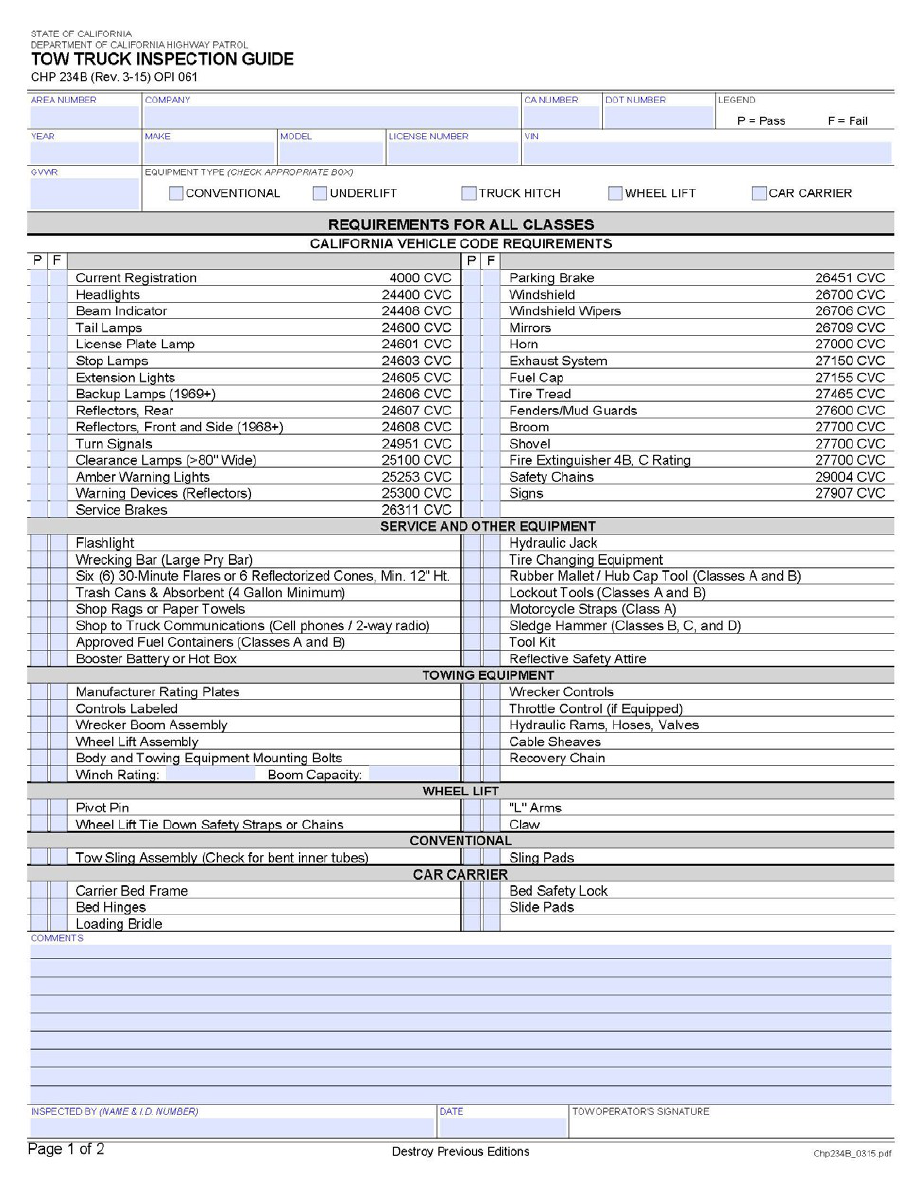
55
Appendix 2 – Tow Truck Inspection Guide – CHP 234B (Rev. 3-15)
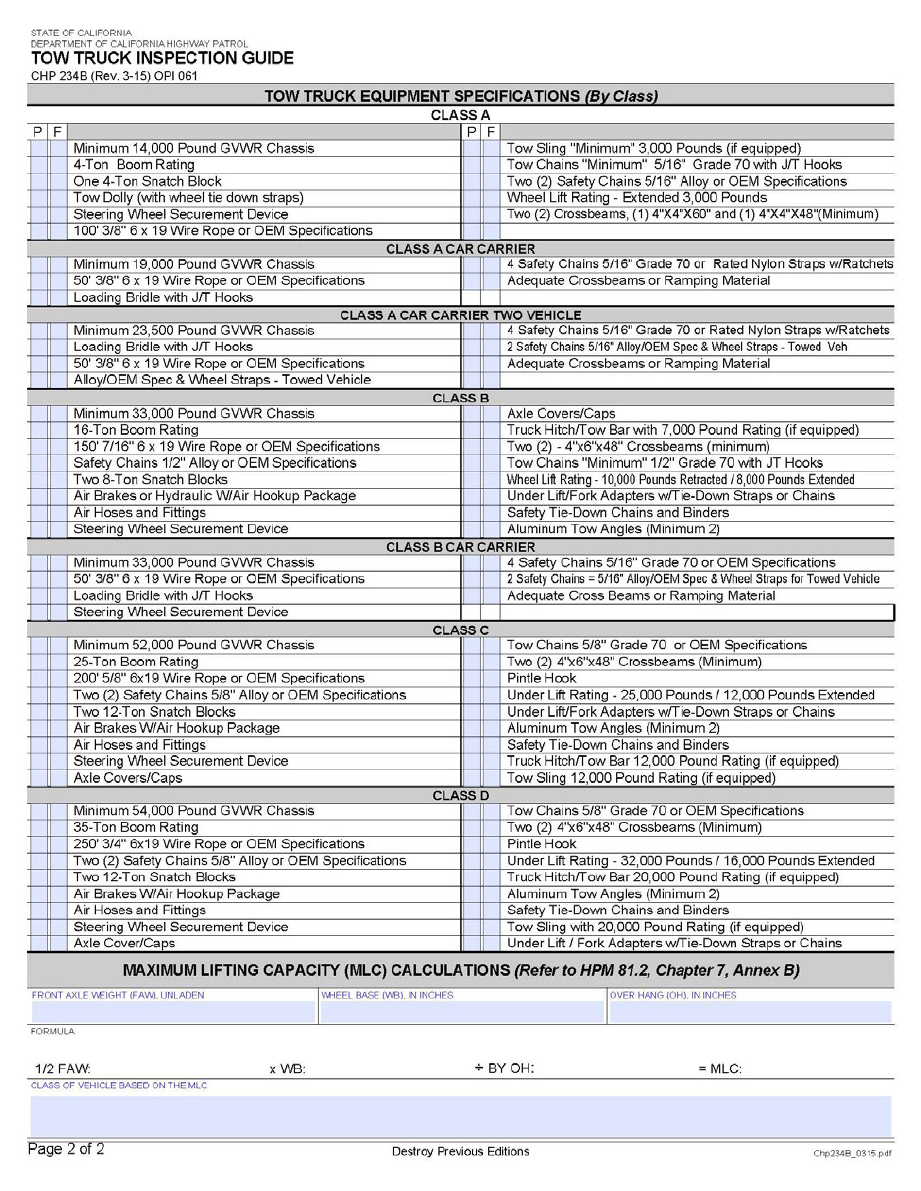
56

57
Appendix 3 – Rates and Fees
A. City Standard Charge Rates
The City establishes the rates for all services charged by Tow Providers for City-initiated
towing and storage. The schedule of rates charged by the Tow Provider is applicable to both
City-Initiated Tow shall be available in the tow truck, and shall be presented, upon demand, to
the person for whom the towing services are provided, their agent, or any representative of
the City at the scene. The Tow Provider shall display, in plain view at all cashier stations, a
sign as described in California Civil Code §3070(E) disclosing all current fees and charges
for towing and storage services provided.
No lien for storage of an impounded vehicle may exceed authorized charges for the
maximum period of storage allowed by applicable laws, including, but not limited to
California Vehicle Code §§ 22851.3, 22851.6, California Civil Code §§ 3067-3074, and
any other applicable statutes. The Tow Provider shall not charge any additional fees or
amounts in excess of the amounts set forth in Rate book of City fees and charges
maintained by the City Clerk.
A.1 Table - Fee Schedule
Fee Schedule
Description
Amount
Rate per
Standard Tow Rate To Registered Owners
Standard-duty Vehicle
$178
Actual Amount
Medium-duty Vehicle
$190
Actual Amount
Heavy-duty Vehicle
$250
Actual Amount
Hourly Rates To Registered Owners (in excess of 1
st
hour
- .1 hour increments)
Medium-duty Vehicle
$190
Actual Amount
Heavy-duty Vehicle
$250
Actual Amount
Payment to LTP for Tow Services
Tow Rate 1 Service Payment – Urban Zones (4,5,6,7)
Standard-duty Vehicle (under 9,500 GVW and unloaded)
$65 Tow
Tow Rate 1 Service Payment – Suburban Zones (1,2,3,8)
Standard-duty Vehicle (under 9,500 GVW and unloaded)
$75 Tow
Tow Rate 2 Service Payment – Urban Zones (4,5,6,7)
Medium-duty Vehicle (9,500 – 22,000 GVW and
unloaded)
$165
Tow
Tow Rate 2 Service Payment – Suburban Zones (1,2,3,8)
Medium-duty Vehicle (9,500 – 22,000 GVW and
unloaded)
$175
Tow
Tow Rate 3 Service Payment – Urban Zones (4,5,6,7)
Heavy-duty Vehicle (over 22,000 GVW and unloaded)
$225 Tow
Tow Rate 3 Service Payment – Suburban Zones (1,2,3,8)
Heavy-duty Vehicle (over 22,000 GVW and unloaded)
$235 Tow
Supplemental Equipment and Service Fees

58
Flat-bed Tow (if required)
$47
Vehicle
Dollies (if required)
$47
Incident
Labor or Stand-by (after first 30 minutes) $18
15-Minute
Increment
Mileage (after first 5 miles)
$5.50
Mile
Gate Fee (after hours fee, inclusive of labor)
$48
Incident
Non-standard Mileage (over 5 miles)
Standard-duty Vehicle
$5.50
Mile
Medium-duty Vehicle
$13.75
Mile
Heavy-duty Vehicle
$19.25
Mile
Storage
Daily – Standard-duty Vehicle (includes Pedicab)
$38
Day
Daily – Medium-duty Vehicle
$70
Day
Daily – Heavy-duty Vehicle
$100
Day
1
st
Day Hourly – (24 hours or less – maxes out at daily
rate)
$5.50 Hour
Lien Fees
Lien 1 Processing; Initiation (<=$500)
$35
Vehicle
Lien 1 Processing; Lien Clear (<=$500)
$35
Vehicle
Lien 2 Processing; Initiation ($500<x<=$4,000)
$35
Vehicle
Lien 2 Processing; Lien Clear ($500<x<=$4,000)
$35
Vehicle
Lien 3 Processing; Initiation (>$4,000)
$50
Vehicle
Lien 3 Processing; Lien Clear (>$4,000)
$50
Vehicle
Lien Sale Service Fee
Entered
Vehicle
Lien Sale Amount
Entered
Vehicle
Lien Package Replacement
$10
Vehicle
Tow Dispatch Contractor Fee
Dispatch Fee
$22
Vehicle
City Administrative Fees
Per Vehicle Franchise Fee*
$74
Vehicle
Tow/Impound Cost Recovery Fee (TICR)
$54
Vehicle
Repossessed Vehicle Release Fee
$15
Vehicle
Vehicle Lien/Forfeiture Proceeds Share
Variable
Vehicle
Parking Citation Fees and Fines
Variable
Vehicle
City Vehicle Tow Fees
Police/City Vehicle Tow, Service Calls, Misc. Towing**
$35
Vehicle
Invalid Tow
$35
Vehicle
Vehicle Transfer/Relocate
$35
Vehicle
Vehicle Abatement
$35
Vehicle
Police/City Evidence/Waived Storage Days
$7
Vehicle
Police/City Invalid Tow/Waived Storage Days
$7
Vehicle
Standard Duty Drop Fee
$12
Vehicle
Medium Duty Drop Fee
$30
Vehicle
Heavy Duty Drop Fee
$42
Vehicle
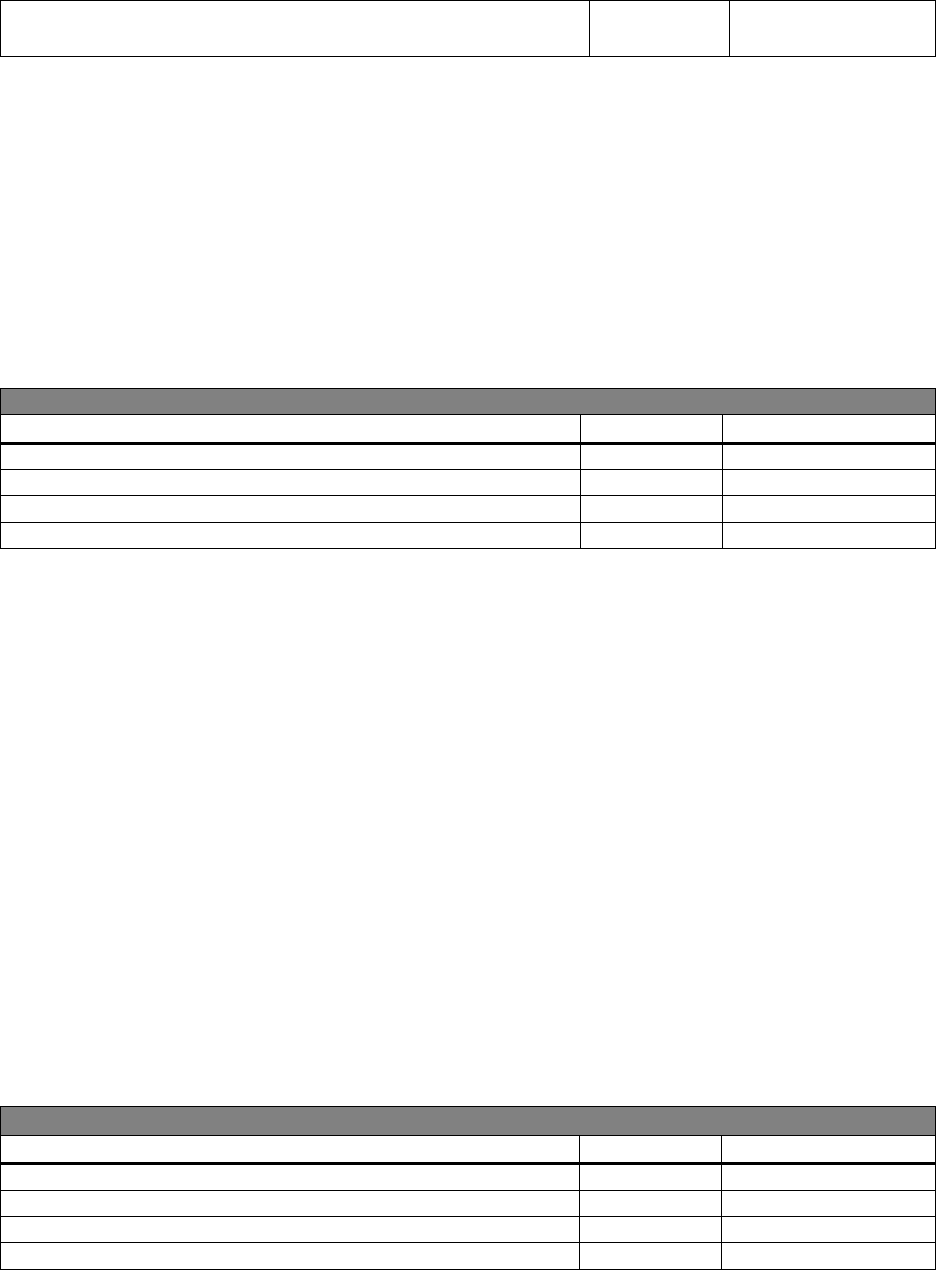
59
Police/City Vehicle/Evidence/Invalid
Tow/Transfer/Relocate Mileage (after first 5 miles)
$2 Mile
*Per-Vehicle Franchise Fee authority: By authority of California Vehicle Code Section
12110(b), the City may require a fee in connection with the award of a franchise for
towing services. Fees may not exceed the amount necessary to reimburse the City for its
actual and reasonable costs incurred in connection.
**Towed City vehicles will be charged at the rate listed above. The City will be charged
the City Tow Rate for service calls; for example, flat tire changes and gasoline refill. The
City will be charged the City Tow rate for miscellaneous towing; for example vehicle
parts, bicycles, safes.
A-2 Revenue Collected by the LIP for the City upon Vehicle Release or Sale
Revenue Collected by the LIP for the City upon Release or Sale of Vehicle
Description
Amount
Rate per
Parking Citation Fees and Fines
Variable
Vehicle
Repossessed Vehicle Release Fee
$15
Vehicle
Tow/Impound Cost Recovery Fee
$54
Vehicle
Vehicle Lien/Forfeiture Proceeds Share
Variable
Vehicle
B. LTP/LIP Payment Rates
Tow and storage rates are intended to provide fair and reasonable compensation to LTPs and
LIPs, and to ensure that the City pays competitive prices for the services it receives.
Payments between the City and Tow Providers are intended to remain current and fully
reconciled. LIP will not pay LTPs for tow services directly; the City or its agents will pass-
through payments for all tow services. Payments will be collected from the LIPs and disbursed
to the LTPs.
• For each vehicle towed, the LTP is due for Tow Services from the City (the pass-through
payment collected from the LIP).
• For each vehicle impounded, the City is due for Tow Services (the pass-through payment
to be disbursed to the LTP) and a per-vehicle Franchise Fee from the LIP.
• At vehicle release, the City is due fees collected by the LIP from the Registered Owner.
• At vehicle sale, the City is due fees and other revenue collected by the LIP as is available
from proceeds.
B-1 Payment to LTP from City or designee for Tow Services (Pass-through from LIP)
Payment to LTP from City for Tow Services
Description
Amount
Rate per
Tow Rate 1 Service Payment – Urban Zones (4,5,6,7)
$65
Vehicle
Tow Rate 1 Service Payment – Suburban Zones (1,2,3,8)
$75
Vehicle
Tow Rate 2 Service Payment – Urban Zones (4,5,6,7)
$165
Vehicle
Tow Rate 2 Service Payment – Suburban Zones (1,2,3,8)
$175
Vehicle
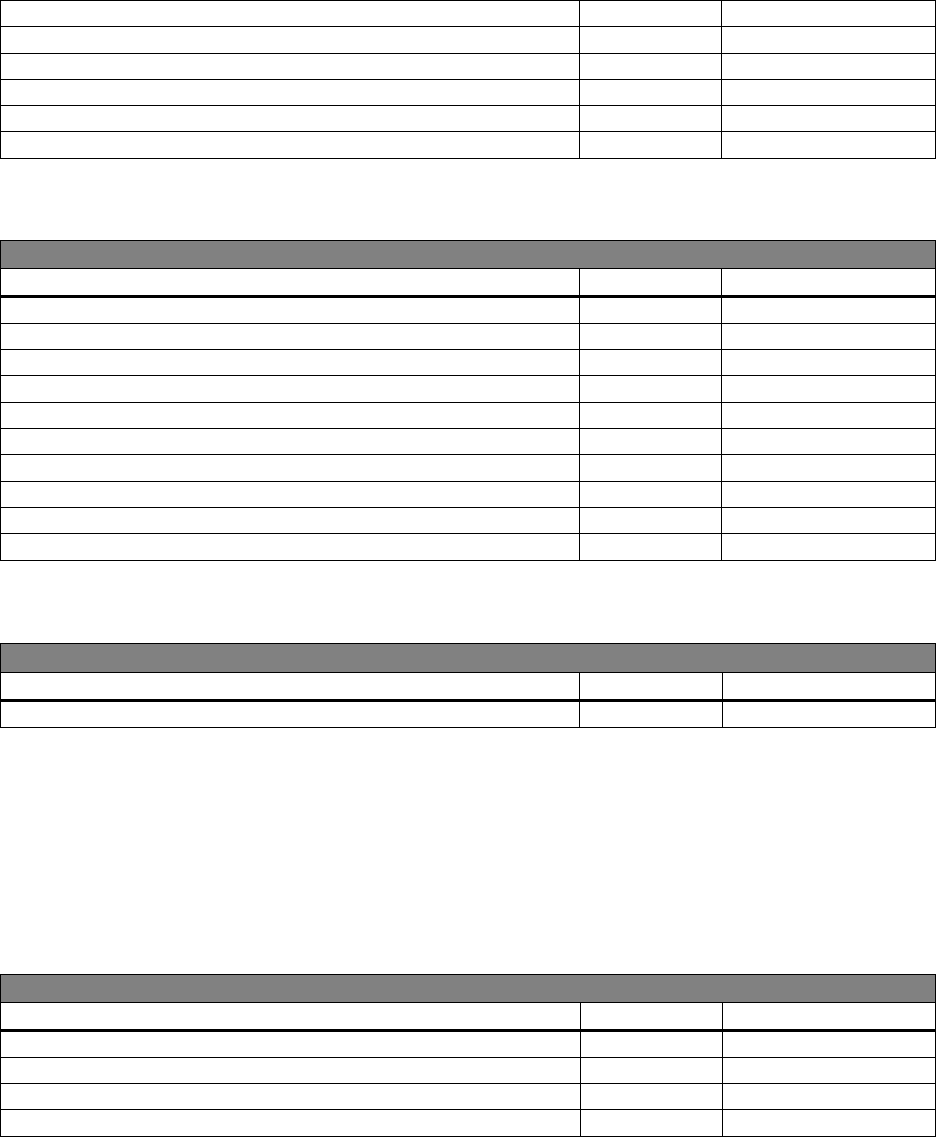
60
Tow Rate 3 Service Payment – Urban Zones (4,5,6,7)
$225
Vehicle
Tow Rate 3 Service Payment – Suburban Zones (1,2,3,8)
$235
Vehicle
Labor or Stand-by (after first 30 minutes)
$18
15-Minute Increment
Dollies or Flat-bed
$47
Incident
Drop Fee
$12
Incident
Mileage (after first 5 miles)
$5.50
Mile
B-2 Payment to City or designee from LIP for Tow Services (Pass-through to LTP)
Payment to City from LIP for Tow Services
Description
Amount
Rate per
Tow Rate 1 Service Payment – Urban Zones (4,5,6,7)
$65
Vehicle
Tow Rate 1 Service Payment – Suburban Zones (1,2,3,8)
$75
Vehicle
Tow Rate 2 Service Payment – Urban Zones (4,5,6,7)
$165
Vehicle
Tow Rate 2 Service Payment – Suburban Zones (1,2,3,8)
$175
Vehicle
Tow Rate 3 Service Payment – Urban Zones (4,5,6,7)
$225
Vehicle
Tow Rate 3 Service Payment – Suburban Zones (1,2,3,8)
$235
Vehicle
Labor or Stand-by (after first 30 minutes)
$18
15-Minute Increment
Dollies or Flat-bed
$47
Incident
Drop Fee
$12
Incident
Mileage (after first 5 miles)
$5.50
Mile
B-3 Payment to City or designee from LIP upon Vehicle Impound – Franchise Fee
Payment to City from LIP upon Vehicle Impound
Description
Amount
Rate per
Per Vehicle Franchise Fee
$74
Vehicle
Per-Vehicle Franchise Fee authority:
By authority of California Vehicle Code Section 12110(b), the City may require a fee in
connection with the award of a franchise for towing services. Fees may not exceed the amount
necessary to reimburse the City for its actual and reasonable costs incurred in connection with
the towing program.
B-4 Payment to City or designee from LIP upon Vehicle Release or Sale
Payment to City from LIP upon Vehicle Release or Sale
Description
Amount
Rate per
Parking Citation Fees and Fines
Variable
Vehicle
Repossessed Vehicle Release Fee
$15
Vehicle
Tow/Impound Cost Recovery Fee (TICR)
$54
Vehicle
Vehicle Lien/Forfeiture Proceeds Share
Variable
Vehicle
Tow/Impound Cost Recovery Fee authority:
By authority of California Vehicle Code Section 22850.5, the City may impose a charge equal
to its administrative costs relating to the removal, impound, storage, or release of impounded
vehicles.

61
B-5 Payment to Tow Dispatch Contractor from LTP upon Completed Tow
Payment to Dispatch Contractor from LTP
Description
Amount
Rate per
Police-Initiated Tow Dispatch Fee
$22
Vehicle
Non-Preference (“Private Tow”) Tow Dispatch Fee
$22
Vehicle
For each vehicle dispatched, the LTP will be responsible for paying the Tow Dispatch
Contractor’s Tow Dispatch Fee. Fees due to the Tow Dispatch Contractor will be reduced
from the City’s payment to the LTP for LTP tow services rendered. Fees collected as a pass
through from the LIP for tow services rendered by LTPs.

62
Appendix 4 – Contract Violations and Disciplinary Actions
If a contracted company (LTP/LIP) and/or employee fails to comply with the operational
requirements of the RFSQ, Tow Agreement, SDPD Managed Towing Operations Manual and all
Laws and Regulations, the SDPD Tow Administration Sergeant or the City of San Diego may
take disciplinary action as deemed appropriate. The list below provides disciplinary actions for
offenses and are not all inclusive.
Area Offense Penalty
Device/Radio No devices logged in Warning; potential suspension for
continued violations
Device/Radio False on-site (aka: “10-97”,
“97”, “on location”) entry
Warning; potential suspension for
continued violations
Device/Radio False clear tow (aka: 10:98)
entry
Warning; potential suspension and/or
termination of Agreement for
excessive instances of this violation
Equipment/Safety
Failure to use tow lights
Warning, traffic citation and/or
potential suspension
Equipment/Safety Failure to properly secure
vehicle to tow apparatus
Warning, traffic citation and/or
potential suspension
Equipment/Safety Failure to properly secure
vehicle
Warning, traffic citation and/or
potential suspension
Equipment/Safety
Use of excessively worn tow
cables, chains, straps to
recover and/or tow vehicles
Warning, potential suspension and/or
termination of Agreement for
excessive instances of this violation
Equipment/Safety
Use of a tow truck that has
safety violations/excess wear
on its components
Warning, traffic citation and/or
potential suspension; truck must be
removed from service until violations
are verified as corrected
Equipment
Failure to have all tools and
tow equipment as defined by
CHP and or local regulations
Warning; potential suspension and/or
termination of Agreement for
excessive instances of this violation
Equipment
Expired or missing vehicle
registration
Traffic Citation and/or potential
suspension
Personal Conduct
Misuse of device/radio Warning; potential suspension and/or
termination of Agreement for
excessive instances of this violation

63
Area Offense Penalty
Personal Conduct
Failure to follow instruction
from authorized personnel at
impound facilities
Warning, potential suspension and/or
termination of Agreement for
excessive instances of this violation
Personal Conduct
Inappropriate language while
working
Warning; potential suspension for
excessive instances of this violation
Personal Conduct
Violations of local smoking
restrictions
Warning; potential suspension for
excessive instances of this violation
Personal Conduct
Failure to attend classes/
seminars/instructional
meetings as required
Warning; potential suspension for
excessive instances of this violation
Personal Conduct
Unauthorized Double
loading.
Warning; potential suspension and/or
termination of Agreement for
excessive instances of this violation
Personal Conduct
Failure to follow Officers
direction on scene.
Warning; potential suspension and/or
termination of Agreement for
excessive instances of this violation
Personal Conduct
Passing/Reassigning a call to
another TTO after accepting
it
Warning; potential suspension and/or
termination of Agreement for
excessive instances of this violation
Administrative
Failure to properly and
accurately complete
necessary paperwork and
provide it timely
Warning; potential suspension and/or
termination of Agreement for
excessive instances of this violation
Personal Conduct
Uniform violations
Warning; potential suspension for
excessive instances of this violation
The basic disciplinary progression will be as outlined below and could be applied to individual
drivers or a tow company as a whole. The penalty will be assessed based on the type, severity
and/or number of violations.
Verbal warning: these typically pertain to following program policy and guidelines and would be
given for non-safety or non-legal issues. While a formal notice would not be sent to the violator,
the Tow Administrator may keep such informal indiscretions in a file for tracking purposes.
Written Warning: for multiple or repeat offenses pertaining to program policy and guidelines a
written warning may be issued. Minor safety and equipment violations may warrant a written
warning. In some cases, the City may issue a citation in lieu of or in addition to a written
warning.
Suspension: driver and company suspensions can be issued for repeat offenders and offences,
multiple and/or major safety violations, citations, personal conduct and some legal issues.
64
Termination: driver and Company termination can be issued for major safety violations, legal
issues as well as for violations with prior written warnings. Drivers or companies who have
multiple written warnings and/or suspensions may be subject to termination.
Nothing shall preclude the City from taking the appropriate enforcement or administrative action
for any violations of law.
Nothing from above shall be deemed to prohibit the City from immediately suspending or
terminating a driver and/or Company for cause or convenience.
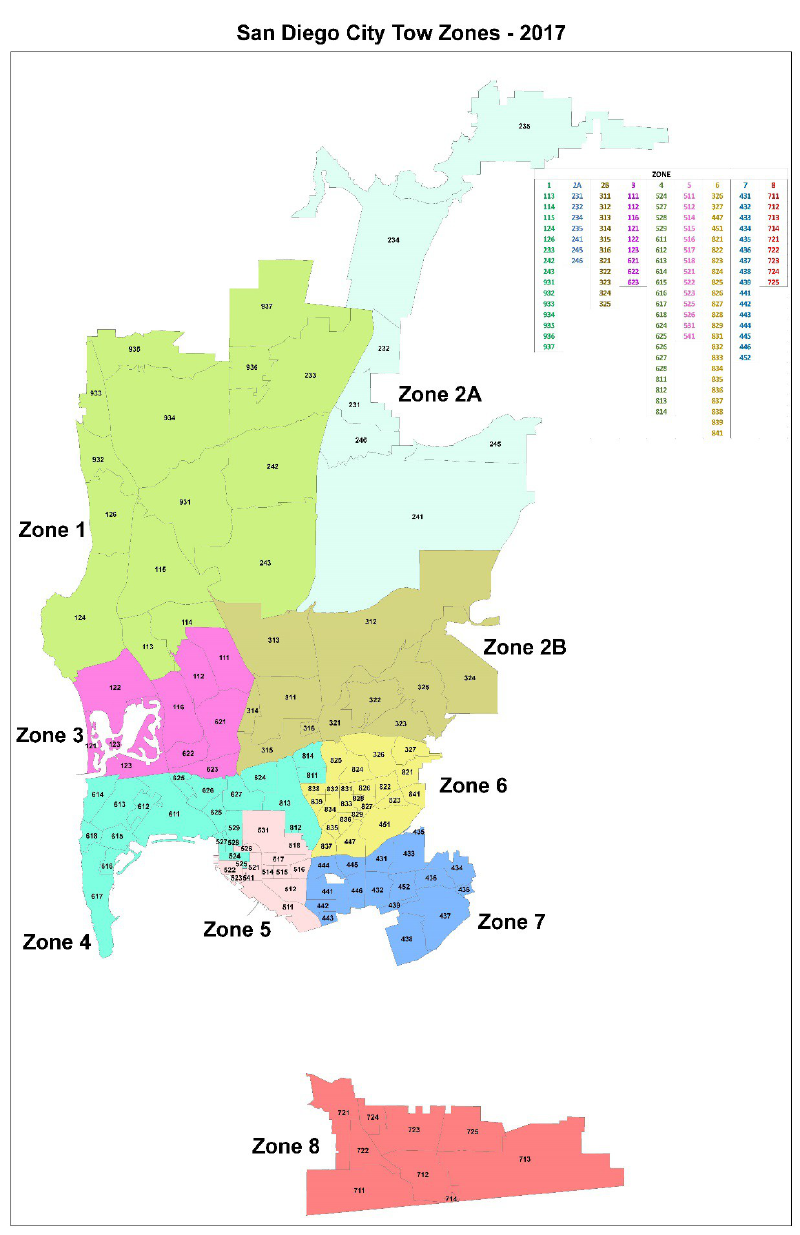
65
Appendix 5 – Map of Tow Zones and Beats
